Competitions and programs (112)
Past winners of the Peter Porter Poetry Prize
ABR subscribers can read all previous prize-winning and shortlisted poems to the Porter Prize. If you aren't a subscriber, digital subscriptions begin at only $10 per month. Click here to become an ABR subscriber.
2024
Dan Hogan: ‘Workarounds’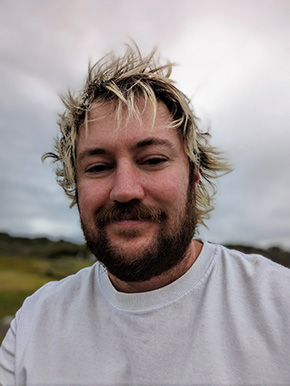
Dan Hogan is the winner of the 2024 Peter Porter Poetry Prize, worth a total of $10,000. The winner was named at a virtual ceremony on 23 January 2024.
Dan Hogan’s winning poem is titled ‘Workarounds’, for which they receive $6,000. The other four shortlisted poets each receive $1,000. The full shortlist, including the winning poem, is available to read online.
This year’s judges – Lachlan Brown, Dan Disney, and Felicity Plunkett – shortlisted five poems from 1,066 entries. The shortlisted poets were Judith Nangala Crispin (NSW), Natalie Damjanovich-Napoleon (WA), Dan Hogan (NSW), Meredi Ortega (Scotland/UK), and Dženana Vucic (Germany).
2023
Dan Disney: 'periferal, fantasmal’
Dan Disney is the winner of the 2023 Peter Porter Poetry Prize, worth a total of $10,000. The winner was named at a virtual ceremony on 19 January 2023.
Dan Disney's winning poem is titled 'periferal, fantasmal', for which he receives $6,000. The other four shortlisted poets each receive $1,000. The full shortlist, including the winning poem, is available to read online.
This year’s judges – Sarah Holland-Batt, James Jiang, and Des Cowley – shortlisted five poems from 1,132 entries. The shortlisted poets were Chris Andrews (Australia), Chris Arnold (Australia), Michelle Cahill (Australia), Dan Disney (South Korea), and Raisa Tolchinsky (United States).
2022
Anthony Lawrence: 'In the Shadows of Our Heads'
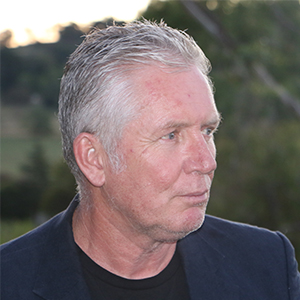 Anthony Lawrence is the winner of the 2022 Peter Porter Poetry Prize, worth a total of $10,000. The winner was named at a virtual ceremony on 19 January 2022.
Anthony Lawrence is the winner of the 2022 Peter Porter Poetry Prize, worth a total of $10,000. The winner was named at a virtual ceremony on 19 January 2022.
Anthony Lawrence's winning poem is titled 'In the Shadows of Our Heads', for which he receives $6,000. The other four shortlisted poets each receive $1,000. The full shortlist, including the winning poem, is available to read online.
This year’s judges – Sarah Holland-Batt, Jaya Savige, and Anders Villani – shortlisted five poems from 1,328 entries, from 34 countries. The shortlisted poets were Chris Arnold (WA), Dan Disney (South Korea), Michael Farrell (Vic), Anthony Lawrence (Qld), and Debbie Lim (NSW).
2021
Sara M. Saleh: 'A Poetics of Fo(u)rgetting'
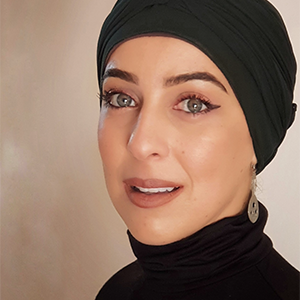 Sara M. Saleh is the winner of the 2021 Peter Porter Poetry Prize, worth a total of $10,000. The winner was named at a virtual ceremony on 27 January 2021.
Sara M. Saleh is the winner of the 2021 Peter Porter Poetry Prize, worth a total of $10,000. The winner was named at a virtual ceremony on 27 January 2021.
Sara M. Saleh's winning poem is titled 'A Poetics of Fo(u)rgetting', for which she receives $6,000. The other four shortlisted poets each receive $1,000. The full shortlist, including the winning poem, is available to read online.
This year’s judges – John Hawke, Lachlan Brown, A. Frances Johnson, and John Kinsella – shortlisted five poems from 1,329 entries, from 33 countries. The shortlisted poets were Danielle Blau (USA), Y.S. Lee (Canada), Jazz Money (NSW), Sara M. Saleh (NSW), and Raisa Tolchinsky (USA).
2020
A. Frances Johnson: 'My Father's Thesaurus'
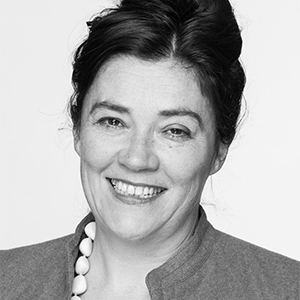 A. Frances Johnson is the winner of the 2020 Peter Porter Poetry Prize, worth a total of $9,000. The winner was named at a ceremony at the Boyd Hub Community Center in Melbourne on January 16.
A. Frances Johnson is the winner of the 2020 Peter Porter Poetry Prize, worth a total of $9,000. The winner was named at a ceremony at the Boyd Hub Community Center in Melbourne on January 16.
A. Frances Johnson's winning poem is titled 'My Father's Thesaurus'. She receives $7,000. The other four shortlisted poets each receive $500. The full shortlist, including the winning poem, is available to read online and is published in the January–February issue of ABR.
This year’s judges – John Hawke, Bronwyn Lea, and Philip Mead – shortlisted five poems from almost 1,050 entries, from 30 countries. The shortlisted poets were Lachlan Brown (NSW), Claire G. Coleman (Vic.), Ross Gillett (Vic.), A. Frances Johnson (Vic. ), and Julie Manning (QLD).
2019
Andy Kissane: 'Searching the Dead'
Belle Ling: '63 Temple Street, Mong Kok'
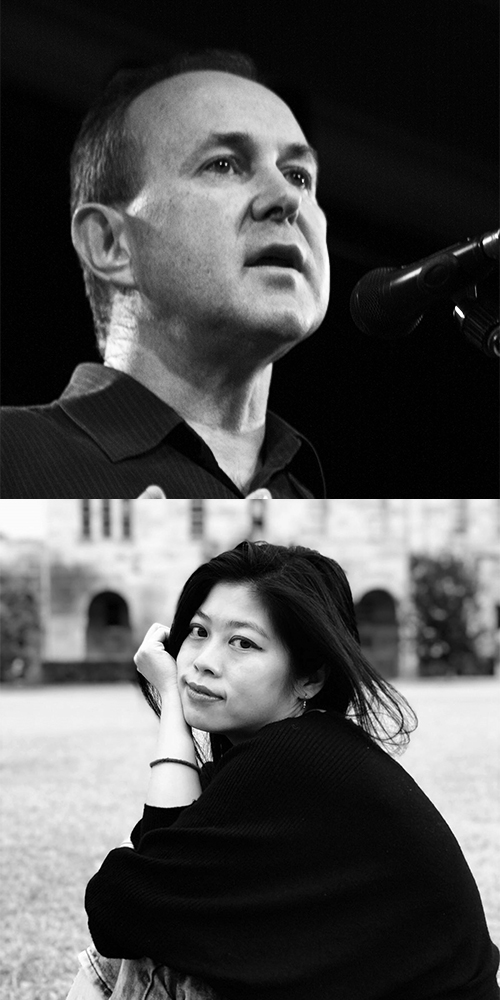 Andy Kissane and Belle Ling are the joint winners of the 2019 Peter Porter Poetry Prize, worth a total of $8,500. The winners were named at a ceremony at fortyfivedownstairs in Melbourne on 18 March 2019.
Andy Kissane and Belle Ling are the joint winners of the 2019 Peter Porter Poetry Prize, worth a total of $8,500. The winners were named at a ceremony at fortyfivedownstairs in Melbourne on 18 March 2019.
This year’s judges – Judith Bishop, John Hawke, Paul Kane – shortlisted five poems from almost 900 entries, from 28 countries. The shortlisted poets were John Foulcher (ACT), Ross Gillett (Vic.), Andy Kissane (NSW), Belle Ling (QLD/Hong Kong), and Mark Tredinnick (NSW).
Porter Prize judge Judith Bishop (representing the judges) commented:
In Belle Ling’s '63 Temple St, Mong Kok', other voices are rendered equally as vividly as the speaker’s own. Together they create the generous and gentle texture of this exceptionally resonant work.
‘Andy Kissane’s 'Searching the Dead' recounts a moment in Australian history – our soldiers’ involvement in the Vietnam War – that has not been captured before in this way. This dense, strongly physical and evocative poem grips the reader’s mind and body, and that imprint remains long after reading.
The shortlisted poems were: '63 Temple St, Mong Kok' by Belle Ling (joint winner, Qld/Hong Kong), 'Searching the Dead' by Andy Kissane (joint winner), 'Dancing with Stephen Hawking' by John Foulcher, 'The Mirror Hurlers' by Ross Gillett, and 'Raven' by Mark Tredinnick.
2018
Nicholas Wong: '101, Taipei'
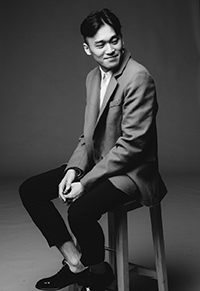 Nicholas Wong is the winner of the 2018 Peter Porter Poetry Prize, now worth a total of $8,500. Louis Klee, the 2017 winner, made the announcement at a special event at fortyfivedownstairs on Monday, 19 March. Nicholas Wong, who flew from Hong Kong to attend the Porter ceremony, receives $5,000. His winning poem, published in the March 2018 issue of Australian Book Review is titled ‘101, Taipei’.
Nicholas Wong is the winner of the 2018 Peter Porter Poetry Prize, now worth a total of $8,500. Louis Klee, the 2017 winner, made the announcement at a special event at fortyfivedownstairs on Monday, 19 March. Nicholas Wong, who flew from Hong Kong to attend the Porter ceremony, receives $5,000. His winning poem, published in the March 2018 issue of Australian Book Review is titled ‘101, Taipei’.
Nicholas Wong, on winning the Prize, said: ‘I’m honoured and humbled to be the winner, especially with a poem whose subject matter may seem foreign. Winning the Porter Prize also allows me to reach out to Australian readers.’
This year’s judges – John Hawke, Bill Manhire, Jen Webb – shortlisted poems by five poets. They were chosen from a record field of almost 1,000 poems. Tracey Slaughter’s poem ‘breather’ was placed second. She receives $2,000 – the other three shortlisted poets $500 each.
The shortlisted poems were: 'Compass' by Eileen Chong, 'Decoding Paul Klee’s Mit Grünen Strümpfen (With Green Stockings) 1939' by Katherine Healy, 'The Abstract Blue Background' by LK Holt, 'breather' by Tracey Slaughter (second place, New Zealand), and '101, Taipei' by Nicholas Wong (winner, Hong Kong).
2017
Louis Klee: 'Sentence to Lilacs'
Damen O'Brien: 'pH'
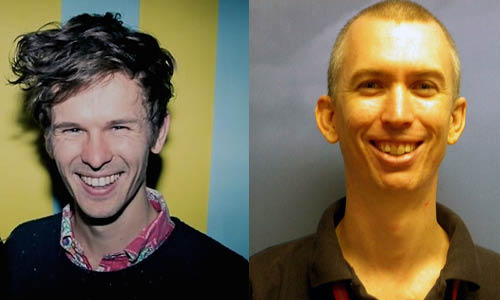 2017 Porter Prize winnersLouis Klee and Damen O'Brien are the joint winners of the 2017 Peter Porter Poetry Prize for their poems 'Sentence to Lilacs' and 'pH'. Morag Fraser named them as the winners at a ceremony at Collected Works Bookshop in Melbourne on March 23. The winners each receive $2,500 for their poems which were selected from almost 1000 entries, the Porter Prize's largest field to date.
2017 Porter Prize winnersLouis Klee and Damen O'Brien are the joint winners of the 2017 Peter Porter Poetry Prize for their poems 'Sentence to Lilacs' and 'pH'. Morag Fraser named them as the winners at a ceremony at Collected Works Bookshop in Melbourne on March 23. The winners each receive $2,500 for their poems which were selected from almost 1000 entries, the Porter Prize's largest field to date.
The judges were Ali Alizadeh, Jill Jones, and Felicity Plunkett.
The shortlisted poems were: 'Sentence to Lilacs' by Louis Klee (joint winner), 'pH' by Damen O'Brien (joint winner), 'Four Egrets' by Ronald Dzerigian (USA), 'Laika' by Anthony Lawrence, 'Drone' by Michael Lee Phillips (USA), 'The Snow Lies Deep' by Jen Saunders, and 'and it is what it is' by Jessie Tu. The shortlisted poets receive $500 each. The seven shortlisted poems appear in ABR’s March 2017 issue.
2016
Amanda Joy: 'Tailings'
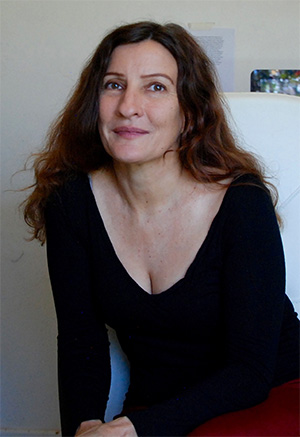 Amanda Joy is the winner of the 2016 Peter Porter Poetry Prize for her poem ‘Tailings’. Morag Fraser named Amanda as the overall winner at a ceremony at Boyd Community Hub in Melbourne. Amanda receives $5,000 for her poem, which was selected from a field of around 730 poems. She also receives Arthur Boyd’s etching and aquatint The unicorn and the angel, 1975 from the series The lady and the unicorn, 1975, donated by Ivan Durrant in memory of Georges Mora.
Amanda Joy is the winner of the 2016 Peter Porter Poetry Prize for her poem ‘Tailings’. Morag Fraser named Amanda as the overall winner at a ceremony at Boyd Community Hub in Melbourne. Amanda receives $5,000 for her poem, which was selected from a field of around 730 poems. She also receives Arthur Boyd’s etching and aquatint The unicorn and the angel, 1975 from the series The lady and the unicorn, 1975, donated by Ivan Durrant in memory of Georges Mora.
The judges were Luke Davies, Lisa Gorton, and Kate Middleton. They commented:‘“Tailings” is a poem remarkable for its close-woven language, everywhere charged with vivid details; and, at the same time, remarkable for its open and wide-ranging attentiveness. In “Tailings” the poet nowhere sets place at an aesthetic distance but everywhere attends to its mess and profligacy, a mode of perception alive to the hunger of animals.’
The shortlisted poems were: 'Tailings' by Amanda Joy (winner), '... a passing shower?' by Dan Disney, 'Prelude to a Voiice' by Anne Elvey, 'Rage to Order' by Lisa Gluskin Stonestreet (USA), and 'Lament for "Cape" Kennedy' by Campbell Thomson. The shortlisted poets receive $625 each.
2015
Judith Beveridge: 'As Wasps Fly Upwards'
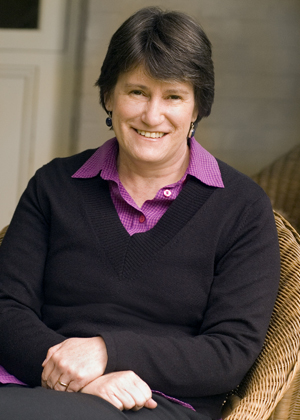 Judith Beveridge is the winner of the 2015 Peter Porter Poetry Prize for her poem ‘As Wasps Fly Upwards’. Morag Fraser named Judith as the overall winner at a ceremony at Collected Works Bookshop in Melbourne. Judith receives $5,000 for her poem, which was selected from a field of around 600 poems. She reflected: ‘I am deeply honoured to have won the Peter Porter Poetry Prize, not only because of the high regard I have for Peter Porter’s poetry and for Australian Book Review, but also because of the very strong 2015 shortlist. I loved all the poems and was truly surprised to hear I’d won. My sincere thanks to ABR for continuing this prestigious prize, which is a great support for poets.’
Judith Beveridge is the winner of the 2015 Peter Porter Poetry Prize for her poem ‘As Wasps Fly Upwards’. Morag Fraser named Judith as the overall winner at a ceremony at Collected Works Bookshop in Melbourne. Judith receives $5,000 for her poem, which was selected from a field of around 600 poems. She reflected: ‘I am deeply honoured to have won the Peter Porter Poetry Prize, not only because of the high regard I have for Peter Porter’s poetry and for Australian Book Review, but also because of the very strong 2015 shortlist. I loved all the poems and was truly surprised to hear I’d won. My sincere thanks to ABR for continuing this prestigious prize, which is a great support for poets.’
The shortlisted poems were: 'As Wasps Fly Upward' by Judith Beveridge (winner), 'Vantage' by Eileen Chong, 'Janus' by Toby Fitch, 'Floribunda' by John Kinsella, 'When/Was' by Kate Middleton, and 'Pitch and Yaw' by Alex Skovron. The shortlisted poets receive $500 each. All six shortlisted poems can be read here.
The judges were Lisa Gorton, Paul Kane, and Peter Rose.
2014
Jessica L. Wilkinson: 'Arrival Platform Humlet'
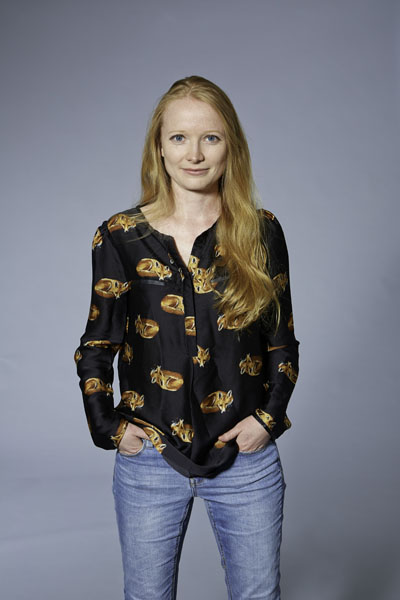 Jessica L. Wilkinson was the winner of the tenth Peter Porter Poetry Prize for her poem ‘Arrival Platform Humlet’, about Percy Grainger. She reflected: ‘For anyone in attendance, my shock at winning the prize was apparent. I entered a state of speechlessness! But I am truly honoured that my poem was recognised in this way and immensely grateful to the judges, Lisa Gorton and Felicity Plunkett.’
Jessica L. Wilkinson was the winner of the tenth Peter Porter Poetry Prize for her poem ‘Arrival Platform Humlet’, about Percy Grainger. She reflected: ‘For anyone in attendance, my shock at winning the prize was apparent. I entered a state of speechlessness! But I am truly honoured that my poem was recognised in this way and immensely grateful to the judges, Lisa Gorton and Felicity Plunkett.’
The shortlisted poems were: 'VFGA' by Paul Kane (USA), 'Absence' by Elizabeth Allen, 'Scenes from the Olivet Discourse' by Nathan Curnow, and 'Arrival Platform Humlet' by Jessica L. Wilkinson (winner). This was the first time that the Porter Prize was open to international entrants. They appeared in the May 2014 issue.
2013
John A. Scott: 'Four Sonnets'
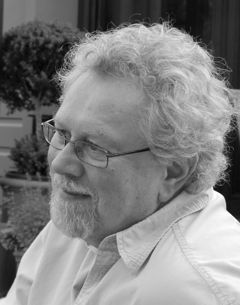 At a function at Boyd, John A. Scott was named the winner of the 2013 Peter Porter Poetry Prize, worth $4,000. Remarkably, his winning entry, ‘Four Sonnets’, is his first new poem in a quarter of a century. Not that Mr Scott has been idle during this time. He is the author of sixteen books to date. His novel What I Have Written won a Victorian Premier’s Prize in 1994, and his novels Before I Wake (1996) and The Architect (2002) were shortlisted for several awards, including the Miles Franklin Award. He has a new book coming out this year with Brandl & Schlesinger, the experimental novel N. On winning the prize, John A. Scott told us: ‘I’m honoured to have won the Peter Porter Poetry Prize with my first new poem in nearly twenty-five years. Doubly honoured in fact, having long regarded Peter Porter as Australia’s finest poet.’
At a function at Boyd, John A. Scott was named the winner of the 2013 Peter Porter Poetry Prize, worth $4,000. Remarkably, his winning entry, ‘Four Sonnets’, is his first new poem in a quarter of a century. Not that Mr Scott has been idle during this time. He is the author of sixteen books to date. His novel What I Have Written won a Victorian Premier’s Prize in 1994, and his novels Before I Wake (1996) and The Architect (2002) were shortlisted for several awards, including the Miles Franklin Award. He has a new book coming out this year with Brandl & Schlesinger, the experimental novel N. On winning the prize, John A. Scott told us: ‘I’m honoured to have won the Peter Porter Poetry Prize with my first new poem in nearly twenty-five years. Doubly honoured in fact, having long regarded Peter Porter as Australia’s finest poet.’
The judges were Peter Rose, David McCooey, and Bronwyn Lea. The shortlisted poems were: 'Prophecy' by Nathan Curnow, 'Big Wig' by A. Frances Johnson, 'Four Sonnets' by John A. Scott (winner), 'procedures in aesthetics' by Dan Disney, and 'Bushfire Approaching' by John Kinsella. They appeared in the March 2013 issue.
2012
Michael Farrell: 'Beautiful Mother'
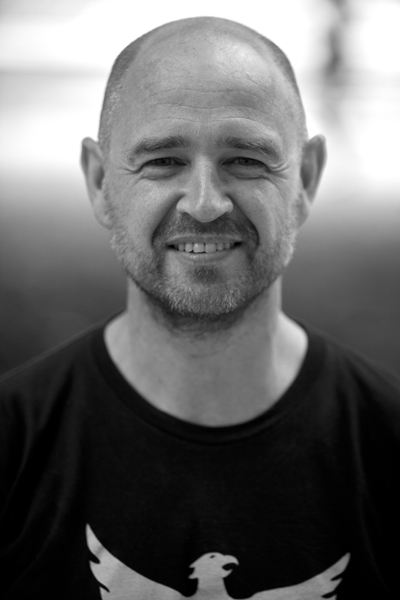 Michael Farrell is the winner of the 2012 Peter Porter Poetry Prize, worth $4,000. Our judges, Judith Beveridge and David McCooey, selected his poem, ‘Beautiful Mother’, from almost 800 entries. On learning of his success, Mr Farrell told us: 'It’s exciting to have won the Peter Porter Poetry Prize, especially from such a large field. It’s an honour to be linked with Peter Porter, whom I was lucky enough to meet on several charming occasions. The poem itself betrays several hauntings: not least a scene from television that’s stayed with me since I was probably four or five, of Kimba the white lion swimming back to the jungle, a vision of his mother in the sky encouraging him.'
Michael Farrell is the winner of the 2012 Peter Porter Poetry Prize, worth $4,000. Our judges, Judith Beveridge and David McCooey, selected his poem, ‘Beautiful Mother’, from almost 800 entries. On learning of his success, Mr Farrell told us: 'It’s exciting to have won the Peter Porter Poetry Prize, especially from such a large field. It’s an honour to be linked with Peter Porter, whom I was lucky enough to meet on several charming occasions. The poem itself betrays several hauntings: not least a scene from television that’s stayed with me since I was probably four or five, of Kimba the white lion swimming back to the jungle, a vision of his mother in the sky encouraging him.'
The shortlisted poems were: 'Provenance' by Gareth Robinson, 'Bayside Suburban' by Anne Elvey, 'Beautiful Mother' by Michael Farrell (winner), 'After Devotion' by Annamaria Weldon, and 'Oscillations' by Toby Fitch. They appeared in the March 2012 issue.
2011
Judith Bishop: 'Openings'
Tony Lintermans: 'Self-portrait at Sixty'
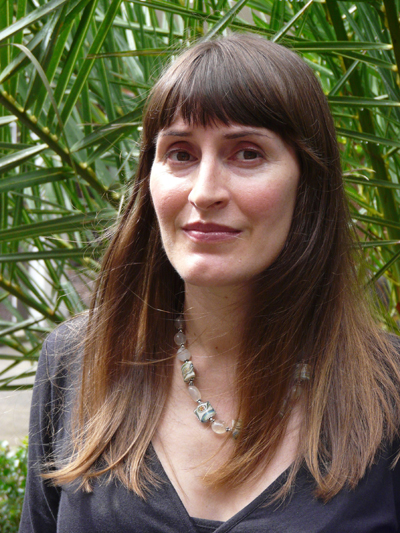 For the first time, two poets have shared our Poetry Prize. The judges – Morag Fraser and Peter Rose – couldn’t separate Judith Bishop (‘Openings’) and Tony Lintermans (‘Self-portrait at Sixty’). Each poet receives $2000. Almost five hundred poems were entered this year.
For the first time, two poets have shared our Poetry Prize. The judges – Morag Fraser and Peter Rose – couldn’t separate Judith Bishop (‘Openings’) and Tony Lintermans (‘Self-portrait at Sixty’). Each poet receives $2000. Almost five hundred poems were entered this year.
Judith Bishop – who becomes the first person to win ABR’s Poetry Prize twice – told us: ‘To win a prize dedicated to the memory of a poet of Peter Porter’s calibre, range, and emotional depth is deeply humbling.’
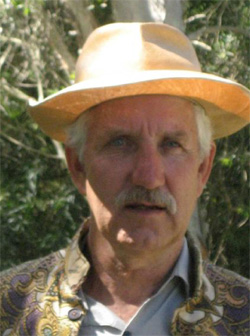
Tony Lintermans likewise reflected on Peter Porter’s legacy, and humanity: ‘What a joy to share the Peter Porter Poetry Prize. The only time I met Peter Porter, at an Adelaide Festival years ago, he was typically generous and thoughtful in his comments. I think of this poem as a small and sadly belated answer to his kindness.’
The shortlisted poems were: 'Self-Portrait at Sixty' by Tony Lintermans (joint winner), 'Dreams and Artefacts' by Lisa Gorton, 'Moonlight Sculptures' by Stephen Edgar, 'Openings' by Judith Bishop (joint winner), and 'Humility' by Alex Skovron. They appeared in the March 2011 issue.
2010
Anthony Lawrence: 'Domestic Emergencies'
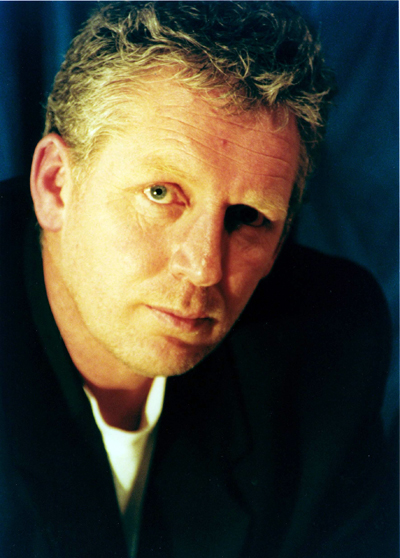 Australian Book Review has much pleasure in announcing the winner of the sixth annual Australian Book Review Poetry Prize. Anthony Lawrence received $4,000 for his poem ‘Domestic Emergencies’. The judges – Ian Donaldson, Morag Fraser, and Peter Rose – chose the poem from a field of just under 400 poems.
Australian Book Review has much pleasure in announcing the winner of the sixth annual Australian Book Review Poetry Prize. Anthony Lawrence received $4,000 for his poem ‘Domestic Emergencies’. The judges – Ian Donaldson, Morag Fraser, and Peter Rose – chose the poem from a field of just under 400 poems.
On winning the prize, Anthony said: ‘I’m thrilled to have won the Australian Book Review’s poetry prize. I’ve been reading the Australian Book Review for many years and the fact that it gives serious space and consideration to poetry, both in its reviews and the publishing of individual poems, is to be celebrated.’
The shortlisted poems were: 'Taken as Required' by Ynez Sanz, 'The Hummingbird Suite' by Diane Fahey, 'Here Come the Missionaries' by Philip Salom, 'Estuary' by Jillian Pattinson, and 'Domestic Emergencies' by Anthony Lawrence (winner). They appeared in the April 2010 issue.
2009
Tracy Ryan: 'Lost Property'

Australian Book Review has much pleasure in announcing the winner of the fifth annual Australian Book Review Poetry Prize. Tracy Ryan received $4,000 for her poem ‘Lost Property’. The judges – Paul Hetherington, Morag Fraser, and Peter Rose – chose the poem from a field of approximately 500 poems.
On being told of her success, Tracy said: ‘I’m honoured, delighted, and very surprised. I’m a keen reader of the ABR but have never published a poem in it before. This is a pleasant way to start! And the poem belongs to an unpublished manuscript of new work, tentatively called The Argument. It feels as if the award somehow helps bring that new book into being.’
The shortlisted poems were: 'Yellow Jacket: Vespula maculifrons' by Rose Lucas, Lost Porperty by Tracy Ryan (winner), 'The Dark Zone' by Kathryn Lomer, 'The Storm Glass' by Lisa Gorton, 'The Reed Pen' by Angela Mahone, and 'The Aquarium' by Judith Beveridge. They appeared in the March 2009 issue.
2008
Ross Clark: 'Danger: Lantana'
 Ross Clark was the winner of the fourth ABR Poetry Prize for his poem ‘Danger: Lantana’. His poem 'Full-Bucket Moon' was shortlisted for the third ABR Poetry Prize.
Ross Clark was the winner of the fourth ABR Poetry Prize for his poem ‘Danger: Lantana’. His poem 'Full-Bucket Moon' was shortlisted for the third ABR Poetry Prize.
Reacting to his win, Clark commented: ‘Both shortlisted poems created memories within rural settings; the former’s fictionality is more obvious, but both poems are songs made from the sweepings of my mind, both begin in the rag-and-bone shop of history and locality. I’m thrilled to have won, and hope the readers of ABR will hear the creek flowing again in these words.’
The judges were Peter Rose, Lisa Gorton and Paul Hetherington. The shortlisted poems were: '(for the siblings)' by Kevin Gillam, 'T/here' by Judith Bishop, 'a full stop reaches the end of its sentence' by Nathan Shepherdson, 'Danger: Lantana' by Ross Clark (winner), and 'The Window' by Brenda Walker. They appeared in the March 2008 issue.
2007
Alex Skovron: 'Sanctum'
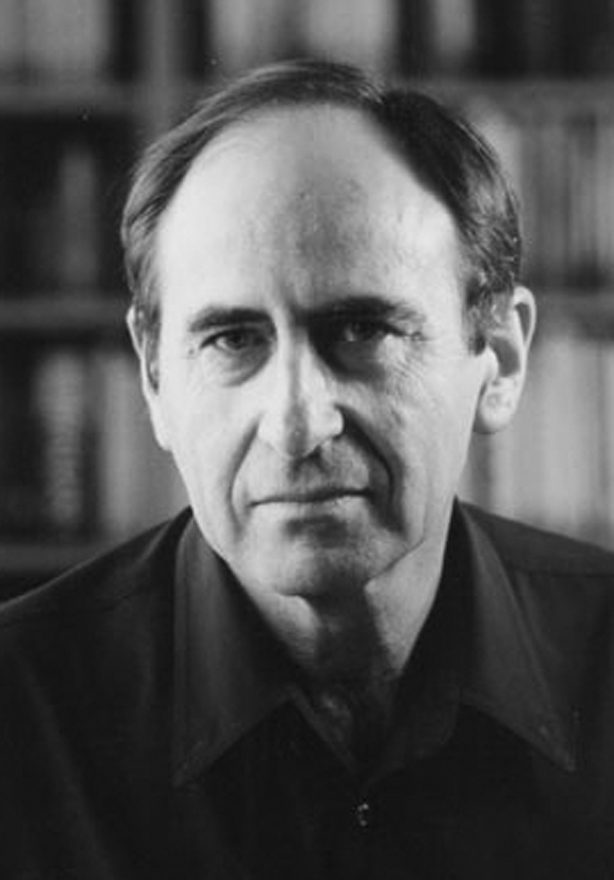 Alex Skovron was the winner of the third ABR Poetry Prize for his poem ‘Sanctum’. His poem ‘Boy’ was shortlisted for the second ABR Poetry Prize.
Alex Skovron was the winner of the third ABR Poetry Prize for his poem ‘Sanctum’. His poem ‘Boy’ was shortlisted for the second ABR Poetry Prize.
The judges were Peter Rose, Morag Fraser and Paul Hetherington. On receiving the judges’ congratulations for his dark, evocative poem, Alex Skovron commented: ‘I’m delighted and honoured to be this year’s recipient of the prize. I wrote the first version of ‘‘Sanctum’’ in July 2004. It’s an oblique, shadowy piece, an offbeat portrait framed within a telling that’s imbued with at least some of the delirium of its protagonist. The other protagonist is, of course, language.’
The shortlisted poems were: 'Sanctum' by Alex Skovron (winner), 'Full-Bucket Moon' by Ross Clark, 'The Fledglings' by Robert Adamson, 'The Fencer and His Mate' by Kathryn Lomer, 'The Red Sea' by Stephen Edgar, and 'Guidance and Knowledge' by Anthony Lawrence. They appeared in the March 2007 issue.
2006
Judith Bishop: 'Still Life with Cockles and Shells'
 Judith Bishop was the winner of the the 2007 ABR Poetry Prize. The judges - Peter Rose, Morag Fraser, and Craig Sherborne - described her winning poem ‘Still Life with Cockles and Shells’ as ‘unfailingly poised and suggestive’.
Judith Bishop was the winner of the the 2007 ABR Poetry Prize. The judges - Peter Rose, Morag Fraser, and Craig Sherborne - described her winning poem ‘Still Life with Cockles and Shells’ as ‘unfailingly poised and suggestive’.
The shortlisted poems were: 'Mallee' by Lisa Gorton, 'Braid' by J.S. Harry, 'Boy' by Alex Skovron, 'Still Life with Cockles and Shells' by Judith Bishop (winner), 'Back Roads, Local Roads' by Brendan Ryan, and 'Spiders' by Keith Harrison. They appeared in the March 2006 issue.
2005
Stephen Edgar: 'Man on the Moon'
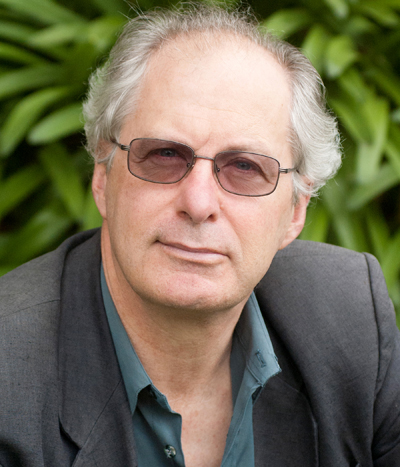 Stephen Edgar won the inaugural ABR Poetry Prize with his poem ‘Man on the Moon’.
Stephen Edgar won the inaugural ABR Poetry Prize with his poem ‘Man on the Moon’.
The three judges, Morag Fraser, Peter Rose, and Peter Steele, were impressed by the overall quality of the entries and were pleased to be able to choose from such a strong shortlist, but the final decision was quick and unanimous because of the formal and imaginative qualities of Stephen Edgar’s poem.
The shortlisted poems were: 'Ventriloquist's Dummy' by Jennifer Harrison, 'Man on the Moon' by Stephen Edgar (winner), 'Ubirr Rock' by Mark Tredinnick, 'Storm' by Maria Takolander, 'Headgear (a review)' by Sandra Hill, and 'Low at the Edge of the Sands' by Kevin Gillam. They appeared in the March 2005 issue.
2015 Peter Porter Poetry Prize
Australian Book Review is delighted to announce that Judith Beveridge has won the 2015 Peter Porter Poetry Prize for her poem ‘As Wasps Fly Upwards’. Morag Fraser named Judith as the overall winner at a ceremony at Collected Works Bookshop in Melbourne. Judith receives $5,000 for her poem, which was selected from a field of around 600 poems.
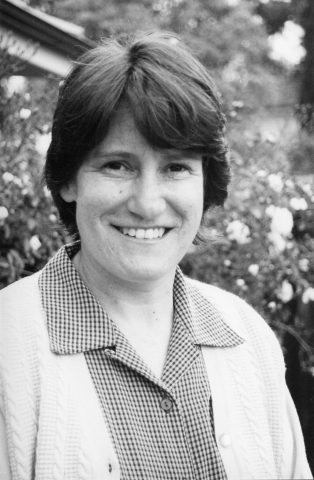
The other shortlisted poets were Eileen Chong, Toby Fitch, John Kinsella, Kate Middleton, and Alex Skovron, who won the Prize in 2007. Each of them receives $500.
Judith Beveridge’s latest poetry publications are Devadatta’s Poems and Hook and Eye, which has just been published by George Braziller for the US market. She currently teaches creative writing at the University of Sydney.
The judges were Lisa Gorton, Paul Kane, and Peter Rose.
‘I am deeply honoured to have won the Peter Porter Poetry Prize, not only because of the high regard I have for Peter Porter’s poetry and for Australian Book Review, but also because of the very strong 2015 shortlist. I loved all the poems and was truly surprised to hear I’d won. My sincere thanks to ABR for continuing this prestigious prize, which is a great support for poets.’ Judith Beveridge
Subscribers can read all six shortlisted poems here
The Porter Prize is one of Australia’s most lucrative and respected awards for poetry. It honours the life and work of the great Australian poet Peter Porter (1929–2010), an honoured contributor to ABR for many years.
Please read our Frequently Asked Questions page before contacting us with queries about the Porter Prize.
Click here for more information about past winners.
We gratefully acknowledge the long-standing support of Ms Morag Fraser AM.
2014 Peter Porter Poetry Prize Winner
Australian Book Review is delighted to announce that Jessica L. Wilkinson has won the 2014 ABR Peter Porter Poetry Prize for her poem ‘Arrival Platform Humlet’. Jessica receives $4,000 for her winning poem, which was drawn from a field of just under 700 entries. The judges were Lisa Gorton and Felicity Plunkett.
‘I am truly honoured that my poem ‘‘Arrival Platform Humlet’’ was recognised in this way and very privileged to be associated with the good name of Peter Porter.’
Jessica L. Wilkinson
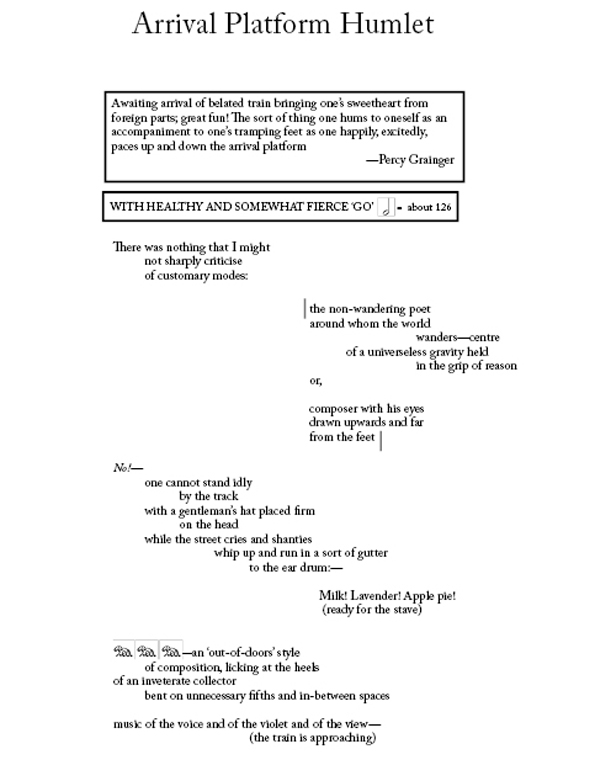
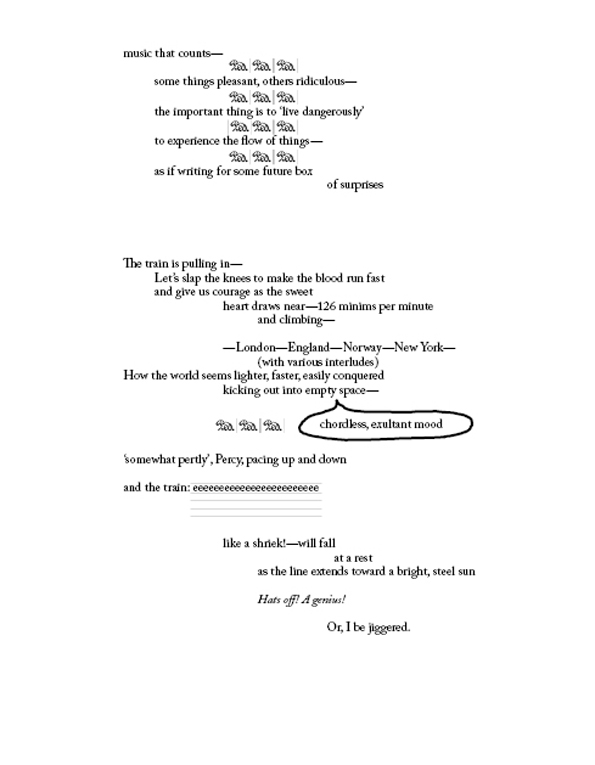
2014 winner
2014 winner
The Calibre Prize, created in 2007, has quickly established itself as Australia’s major prize for an original essay, generating brilliant new essays and fresh insights into culture, society, and the human condition. Click here for more information about past Calibre Prize winners.
Australian Book Review has much pleasure in announcing the winner of the 2014 Calibre Prize for an Outstanding Essay. Christine Piper receives $5000 for her essay ‘Unearthing the Past’. The judges – Morag Fraser and ABR Editor Peter Rose – chose Piper’s essay from a large field. We congratulate all of them, especially the winner and shortlisted essayists.
Peter Rose said, ‘Christine Piper’s inspired essay complements Calibre’s long record of highlighting essays of real quality and moment. Readers will not easily forget this bracing and important essay.’
Christine Piper writes about biological weapons and experiments on living human beings in pre-war and wartime Japan. The remains of just some of the victims (the overall death toll is estimated at 250,000 to 300,000) were discovered in Tokyo twenty-five years ago. They have never been identified. The story takes Dr Piper to Japan, where she interviews key lawyers and activists who are seeking answers. We also meet the unspeakable Shiro Ishii, dubbed the Josef Mengele of Japan. Ishii, who masterminded Japan’s biological warfare program, escaped prosecution through an immunity deal with the United States. He died at home in 1959.
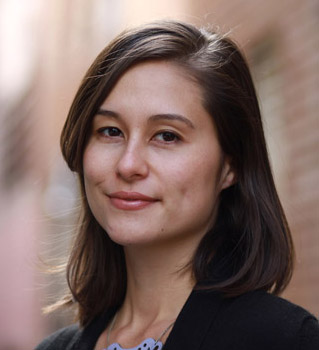 CHRISTINE PIPER is a freelance writer and editor. Born in South Korea to a Japanese mother and Australian father, she moved to Australia when she was one. She has previously taught English and studied Japanese in Japan, and currently lives in New York with her husband. See: www.christinepiper.com
CHRISTINE PIPER is a freelance writer and editor. Born in South Korea to a Japanese mother and Australian father, she moved to Australia when she was one. She has previously taught English and studied Japanese in Japan, and currently lives in New York with her husband. See: www.christinepiper.com
On learning that she had won the Calibre Prize, Christine Piper commented: ‘I am honoured to be chosen as the winner, and delighted that my essay will have a wide audience thanks to Australian Book Review and Colin Golvan. I’d like to dedicate the award to the activists who have spent years campaigning and raising awareness about this dark chapter of Japan’s past.’
Christine Piper's winning essay is published in the April 2014 issue of ABR.
![]() Click here to download the media release.
Click here to download the media release.
Click here to read Christine Piper's essay: 'Unearthing the Past'.
Purchase the April 2014 print edition.
Subscribe to ABR Online to gain access to this issue online, plus the ABR archive (containing all Calibre Prize essays published from 2011).
Shortlisted essays
- Ruth Balint: ‘The Paradox of Weimar: Hitlerism and Goethe’
- Martin Edmond: ‘Five Towns’
- Rebecca Giggs: ‘Open Ground: Trespassing on the Pilbara’s Mining Boom’
- Ann-Marie Priest: ‘“Something very difficult and unusual”: The Love Song of Henry and Olga’
- Stephen Wright: ‘Blows upon a Bruise’
ABR gratefully acknowledges the support of Mr Colin Golvan SC.
2014 Jolley Prize
Jennifer Down was named the winner of the 2014 ABR Elizabeth Jolley Short Story Prize in front of a packed house at Melbourne Writers Festival on Saturday, 30 August. Ms Down, a Victorian writer, received $5,000 for her story entitled ‘Aokigahara’.
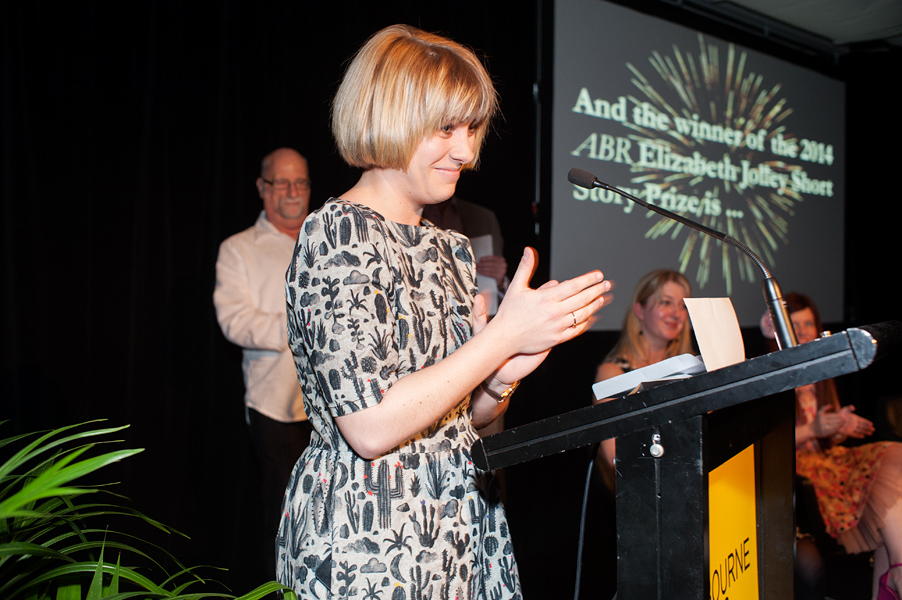 Jennifer Down at the announcement ceremony (photograph by Torunn Momtazi)
Jennifer Down at the announcement ceremony (photograph by Torunn Momtazi)
The Jolley Prize – one of Australia’s most lucrative and visible awards for short fiction – attracted about 1,200 entries. The judges – Patrick Allington, Cassandra Atherton, and Amy Baillieu – shortlisted three stories:
Jennifer Down – ‘Aokigahara’ First place: $5,000
Faith Oxenbridge – ‘Doisneau’s Kiss’ Second place: $2,000
Cate Kennedy – ‘The Art of Life’ Third place: $1,000
All three stories appear in full in our September Fiction issue.
The judges also highly commended two stories which we will publish in coming months: Gregory Day’s ‘The 900s Have Moved’ and ‘The Great Dying’ by American writer Larry O’Connor.
We will begin seeking entries in the sixth Jolley Prize in December 2014.
Readers’ Choice Award
To celebrate the Jolley Prize (and to find out which of the three shortlisted stories our readers like most), we are also presenting the Readers’ Choice Award. You have until October 20 to nominate your favourite story. To do so, simply email us with the title of the story you wish to nominate, along with your full name, address, and telephone number: This email address is being protected from spambots. You need JavaScript enabled to view it.
We have some special prizes for three lucky voters. One will receive twenty-five Text Classics, courtesy of Text Publishing. Two other voters will receive two-year complimentary subscriptions to ABR Online.
‘ABR has also contributed to elevating the status of the short story with its annual Jolley Prize.’ – Blanche Clark, Herald Sun
You may be interested in reading the shortlisted stories from previous years.
More information about all our past winners is available here.
We also recommend you read our list of Frequently Asked Questions before contacting us with a question about the Jolley Prize.
Entries for the 2015 Jolley Prize will officially open in December. Keep up to date with the latest developments on the prize, as well as other interesting ABR news and giveaways, by signing up to our newsletters.
Jolley Prize Frequently Asked Questions
I don’t live in Australia and I am not an Australian citizen. Can I still enter?
Yes, you can. Anyone can enter the Jolley Prize. But all stories must be written in English.
I’m interested in the Jolley Prize but don’t know much about it. How can I familiarise myself with the competition?
This is the fifteenth time that Australian Book Review has presented a short story prize. Past issues containing the shortlisted and winning stories are available for subscribers to read online in our online archive or to purchase in hard-copy from our online store.
Click here for more information about past winners.
What is the entry period for the 2024 Jolley Prize?
Entries for the 2024 Jolley Prize were open from 16 January 2024 to 22 April 2024. The three shortlisted stories will be published in the August or September 2024 issue and the winner will be announced later in the month of publication.
Is there a set theme or topic for the Jolley Prize?
No, stories can be on any subject and in any style.
What is the word limit for the Jolley Prize?
Stories must be between 2,000 and 5,000 words in length.
Can I submit a non-fiction story?
No, the Jolley Prize is for fiction, although entries can be inspired by real life. ABR also presents the annual Calibre Essay Prize, which is intended for non-fiction essays.
Can I enter multiple stories in one entry?
No. Separate entries must be made, and transactions paid, for each story entered into the Jolley Prize. This is to ensure that a record is kept of each story entered, and also to ensure that payment is successfully made for each.
Is there a limit to the number of stories I can enter?
No, but as stated above, each story must be entered and paid for separately, as individual entries.
I have written a story with someone else. Are we eligible to enter the Jolley Prize?
No, stories entered in the Jolley must be written by one individual author.
My friend/relative has written a story, can I enter it on their behalf?
No, stories must be entered by their authors.
Are translated stories eligible for entry in the Jolley Prize?
No.
To be eligible for entry in the Jolley Prize stories must not have been previously published, what constitutes ‘publication’?
Publication includes, but is not limited to, publication in print and online (for example in a journal/magazine/anthology or on a website). Publication on a personal blog/website constitutes publication. If a story has been written and assessed as part of a writing course but has not been distributed further, that does not constitute publication.
My story was shortlisted/commended for another prize, can I enter it in the Jolley Prize?
If your story was shortlisted/commended for another prize but was not published, then it can be entered in the Jolley. Please contact us if you are unsure about eligibility.
Can I submit the work I have entered in the Jolley Prize elsewhere while I await notification?
Initially, stories may be entered in other prizes or submitted to other publications. However, if your story is longlisted in the Jolley Prize you must confirm eligibility and exclusivity – i.e. you must either withdraw it from the other outlets/prizes or withdraw it from the Jolley Prize.
When will longlisted authors be contacted?
Notification will take place in July or early August 2024. Longlisted authors who are not shortlisted will be notified in July/August and can then offer their stories elsewhere. See our Terms and Conditions for more information.
When will non-longlisted authors be notified?
Notification will take place in July or early August 2024.
When and where will the shortlisted stories be published?
The three shortlisted stories will be published in the August or September 2024 issue of ABR and on the ABR website.
What is the prize money for the 2023 Jolley Prize?
The Jolley Prize is worth a total of $12,500 (AUD). This will be split between the three shortlisted authors in the following way:
First Prize: $6,000
Second Prize: $4,000
Third Prize: $2,500
Can I pay the discounted entry fee?
Current print subscribers and yearly digital subscribers may pay the discounted entry fee of AU$20 per entry. Non-subscribers pay AU$30 per entry. If you would like a print and/or digital subscription to ABR, click here.
Alternatively you can purchase a yearly digital subscription to ABR with your entry for the combined price of AU$100. Your sign-in details will be automatically sent to you by email, and you will be entitled to enter any additional stories at the discounted rate. We also offered combined print subscriptions and Jolley Prize entry packages. A full list of entry rates appears below:
Online entry (current ABR subscriber) - $20
Online entry (standard/non subscriber) - $30*
Online entry + 1-year digital subscription - $100
Online entry + 1-year print & digital subscription (Australia) - $120
Online entry + 1-year print & digital subscription (NZ and Asia) - $200
Online entry + 1-year print & digital subscription (Rest of World) - $220
Note: Print subscribers must provide their subscriber number to be eligible for the discounted rate (this can be found on the flysheet sent out with the magazine, or on renewal notices – alternatively, This email address is being protected from spambots. You need JavaScript enabled to view it. and we will provide you with your subscriber number). Likewise, yearly digital subscribers must provide the email address with which they registered the online subscription.
Can I pay with PayPal?
At this time we are accepting credit card payments only – Visa and MasterCard. We do not accept Amex.
Will I receive confirmation of payment?
Yes, once you have submitted your online entry and payment form, you will receive a confirmation email at the email address you supplied in the form. Keep a copy for your records. If you cannot find the confirmation email, be sure to check that it has not gone to your spam or junk folders.
Can I enter by post?
No, entries must be submitted online.
Who are the judges this year?
The 2024 judges are Patrick Flanery, Melinda Harvey and Susan Midalia.
Will you give me feedback about my story?
Unfortunately, we don’t have the time or resources to comment on individual stories.
How should I format my story?
Entries should be presented in 12 pt font size. The pages of stories should be numbered. (Please note, if you realise that you have submitted your story without the preferred formatting this will not disqualify it from the Prize.) The author’s name must not appear in the body of the entry or in the name of the digital file.
What file type is acceptable?
We accept Word documents only. Please do not submit a PDF.
Where can I find the complete Terms and Conditions of entry?
These can be found here.
How can I stay in touch with news about the Jolley Prize?
If you have provided us with a current email address we will contact you with news about the Jolley Prize. Another way to stay up-to-date with news about the Jolley Prize and other ABR prizes and events is to sign up to our online newsletters. Alternatively you can follow us on Twitter, Facebook, or Instagram.
My question isn't answered here, what should I do?
If you have a question about the Jolley Prize that isn't answered here, or in the entry guidelines, please contact us via the comments facility below and we will respond when we can.
2014 Porter Prize winner
Jessica L. Wilkinson wins 2014 Porter Prize
 Australian Book Review is delighted to announce that Jessica L. Wilkinson has won the 2014 ABR Peter Porter Poetry Prize for her poem ‘Arrival Platform Humlet’. Jessica receives $4,000 for her winning poem, which was drawn from a field of just under 700 entries.
Australian Book Review is delighted to announce that Jessica L. Wilkinson has won the 2014 ABR Peter Porter Poetry Prize for her poem ‘Arrival Platform Humlet’. Jessica receives $4,000 for her winning poem, which was drawn from a field of just under 700 entries.
Elizabeth Allen, Nathan Curnow, and Paul Kane were also shortlisted, with each poet receiving $833 for their shortlisted poems (‘Absence’, ‘Scenes from the Olivet Discourse’ and ‘VFGA.’ respectively).
The judges were Lisa Gorton and Felicity Plunkett.
‘I am truly honoured that my poem ‘‘Arrival Platform Humlet’’ was recognised in this way and very privileged to be associated with the good name of Peter Porter.’
Jessica L. Wilkinson
Judges' report
‘Judging this prize was difficult, if rewarding, because the number of poems that demanded serious consideration. The judges longlisted more than thirty. After much consideration, we shortlisted four of them. They showed a thoughtful and inventive approach to the traditions that they were drawing on, and achieved a distinctive and memorable poetic vision.’
Lisa Gorton and Felicity Plunkett
ABR gratefully acknowledges the support of Morag Fraser AM
Past winners of the ABR Elizabeth Jolley Short Story Prize
ABR subscribers can read all previous prize-winning and shortlisted stories to the Jolley Prize. If you aren't a subscriber, digital subscriptions begin at only $10 per month. Click here to become an ABR subscriber.
2023
Rowan Heath: ‘The Mannequin’
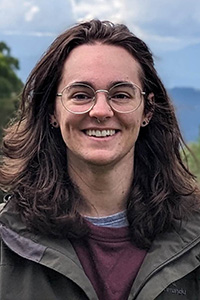 Rowan Heath was the winner of the 2023 ABR Elizabeth Jolley Short Story Prize for their story ‘The Mannequin’. They received $6,000. This year’s prize received 1,200 entries from thirty-eight different countries. Uzma Aslam Khan placed second and receives $4,000 for her story ‘Our Own Fantastic’ , and Winter Bel placed third and received $2,500 for her story ‘Black Wax’ The 2023 Jolley Prize was judged by Gregory Day, Jennifer Mills, and Maria Takolander. The shortlisted stories were published in the 2023 August issue.
Rowan Heath was the winner of the 2023 ABR Elizabeth Jolley Short Story Prize for their story ‘The Mannequin’. They received $6,000. This year’s prize received 1,200 entries from thirty-eight different countries. Uzma Aslam Khan placed second and receives $4,000 for her story ‘Our Own Fantastic’ , and Winter Bel placed third and received $2,500 for her story ‘Black Wax’ The 2023 Jolley Prize was judged by Gregory Day, Jennifer Mills, and Maria Takolander. The shortlisted stories were published in the 2023 August issue.
2022
Tracy Ellis: ‘Natural Wonder’
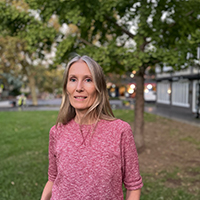 Tracy Ellis was the winner of the 2022 ABR Elizabeth Jolley Short Story Prize for her story ‘Natural Wonder’. She received $6,000. This year’s prize received 1,338 entries from thirty-six different countries. Nina Cullen placed second and received $4,000 for her story ‘Dog Park’, and C.J. Garrow placed third and received $2,500 for his story ‘Whale Fall’. The 2022 Jolley Prize was judged by Amy Baillieu, Melinda Harvey, and John Kinsella. Each of the shortlisted stories were published in the 2022 August issue.
Tracy Ellis was the winner of the 2022 ABR Elizabeth Jolley Short Story Prize for her story ‘Natural Wonder’. She received $6,000. This year’s prize received 1,338 entries from thirty-six different countries. Nina Cullen placed second and received $4,000 for her story ‘Dog Park’, and C.J. Garrow placed third and received $2,500 for his story ‘Whale Fall’. The 2022 Jolley Prize was judged by Amy Baillieu, Melinda Harvey, and John Kinsella. Each of the shortlisted stories were published in the 2022 August issue.
2021
Camilla Chaudhary: ‘The Enemy, Asyndeton’
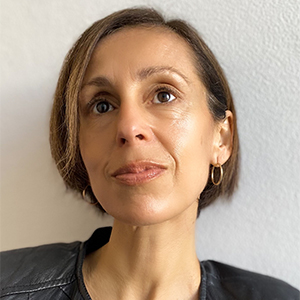 Camilla Chaudhary was the winner of the 2021 ABR Elizabeth Jolley Short Story Prize for their story ‘The Enemy, Asyndeton’. She received $6,000. This year’s prize received 1,428 entries from thirty-six different countries. Lauren Sarazen placed second and received $4,000 for her story ‘There Are No Stars Here, Either’, and John Richards placed third and received $2,500 for his story ‘A Fall from Grace’. The 2021 Jolley Prize was judged by Gregory Day, Melinda Harvey, and Elizabeth Tan. Each of the shortlisted stories are published in the 2021 August issue.
Camilla Chaudhary was the winner of the 2021 ABR Elizabeth Jolley Short Story Prize for their story ‘The Enemy, Asyndeton’. She received $6,000. This year’s prize received 1,428 entries from thirty-six different countries. Lauren Sarazen placed second and received $4,000 for her story ‘There Are No Stars Here, Either’, and John Richards placed third and received $2,500 for his story ‘A Fall from Grace’. The 2021 Jolley Prize was judged by Gregory Day, Melinda Harvey, and Elizabeth Tan. Each of the shortlisted stories are published in the 2021 August issue.
2020
Mykaela Saunders: ‘River Story’
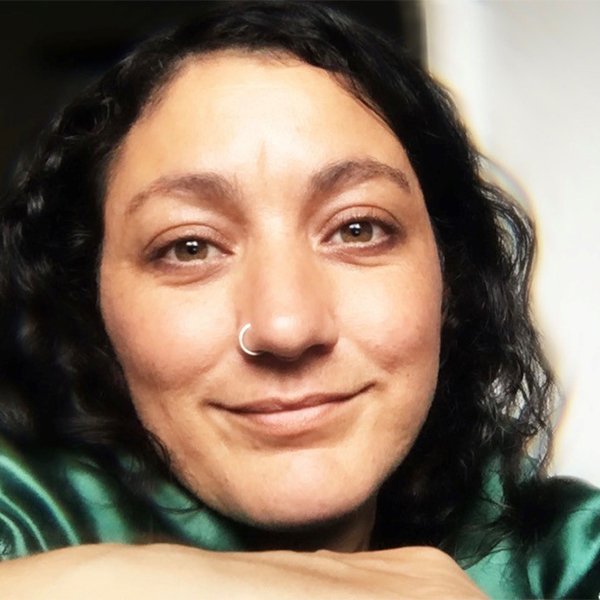 Mykaela Saunders was the winner of the 2020 ABR Elizabeth Jolley Short Story Prize for her story ‘River Story’. Mykaela Saunders received $6,000. C.J. Garrow was placed second for his story ‘Egg Timer’, and Simone Hollander was placed third for her story ‘Hieroglyph’. This year the Jolley Prize attracted almost 1,450 entries from 34 different countries. The judges were Gregory Day, Josephine Rowe, and Ellen van Neerven. The three shortlisted stories appear in our August Fiction issue.
Mykaela Saunders was the winner of the 2020 ABR Elizabeth Jolley Short Story Prize for her story ‘River Story’. Mykaela Saunders received $6,000. C.J. Garrow was placed second for his story ‘Egg Timer’, and Simone Hollander was placed third for her story ‘Hieroglyph’. This year the Jolley Prize attracted almost 1,450 entries from 34 different countries. The judges were Gregory Day, Josephine Rowe, and Ellen van Neerven. The three shortlisted stories appear in our August Fiction issue.
2019
Sonja Dechian: ‘The Point-Blank Murder’
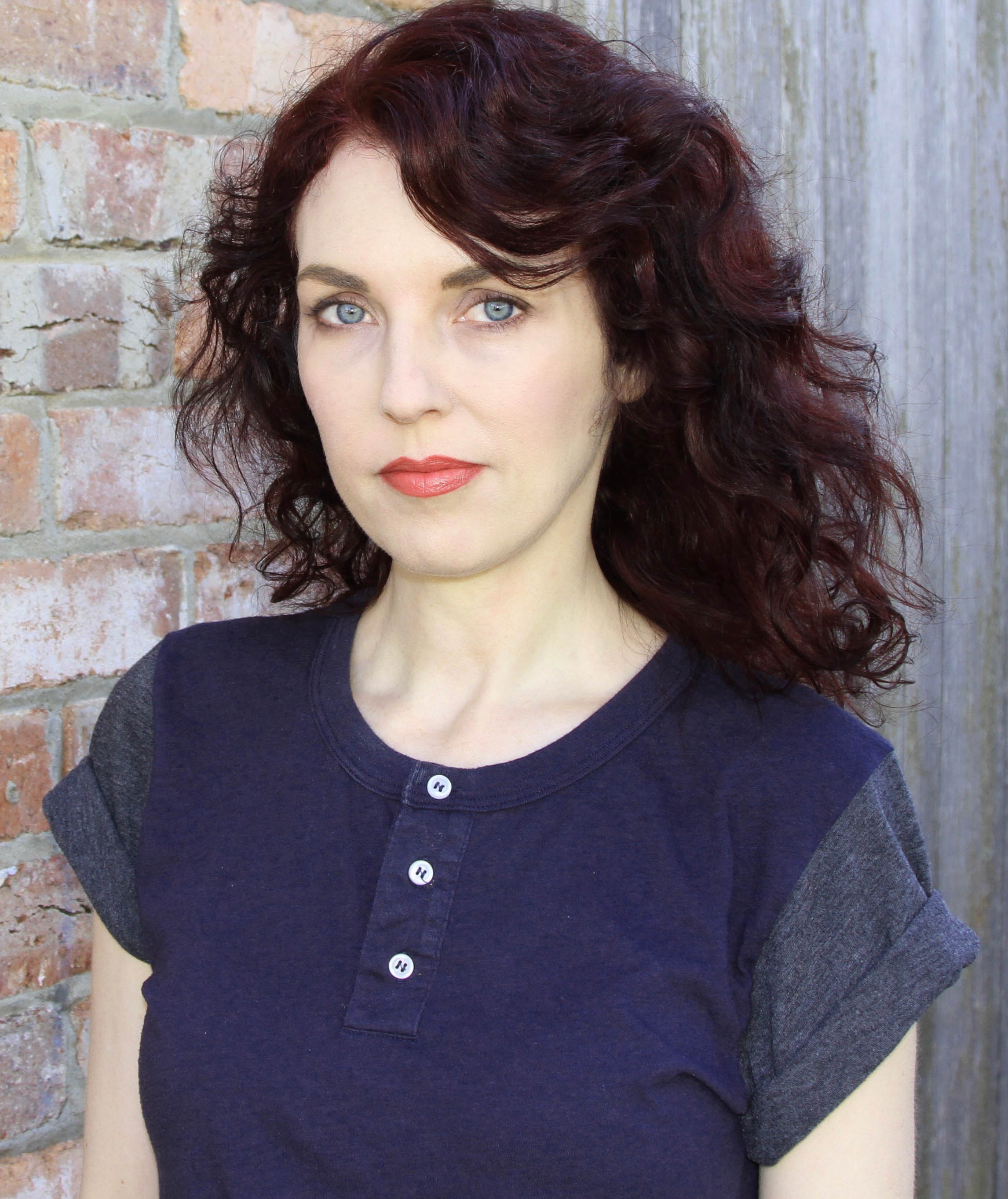 Sonja Dechian was the winner of the 2019 ABR Elizabeth Jolley Short Story Prize for her story ‘The Point-Blank Murder’. She received $5,000. Raaza Jamshed was placed second for her story ‘Miracle Windows’, and Morgan Nunan was placed third for his story ‘Rubble Boy’. The judges were Maxine Beneba Clarke, John Kinsella and Beejay Silcox. Subscribers can read all three stories in the 2019 Fiction issue.
Sonja Dechian was the winner of the 2019 ABR Elizabeth Jolley Short Story Prize for her story ‘The Point-Blank Murder’. She received $5,000. Raaza Jamshed was placed second for her story ‘Miracle Windows’, and Morgan Nunan was placed third for his story ‘Rubble Boy’. The judges were Maxine Beneba Clarke, John Kinsella and Beejay Silcox. Subscribers can read all three stories in the 2019 Fiction issue.
2018
Madelaine Lucas: ‘Ruins’
M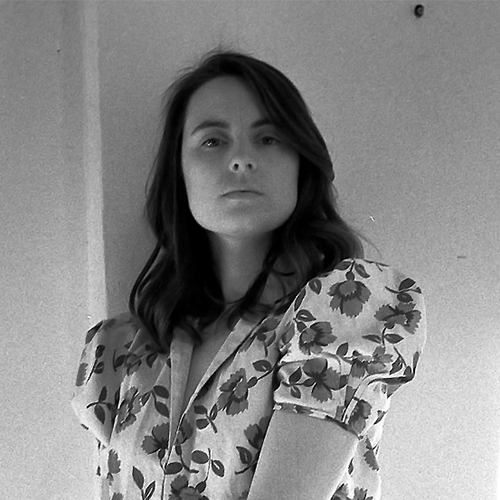 adelaine Lucas was named the winner of the 2018 ABR Elizabeth Jolley Short Story Prize for her story ‘Ruins’. Madelaine Lucas receives $7,000. Sharmini Aphrodite was placed second for her story ‘Between the Mountain and the Sea’ and Claire Aman placed third for her story 'Vasco'. The judges were Patrick Allington, Michelle Cahill, and Beejay Silcox. Subscribers can read all three shortlisted stories in the August 2018 Fiction issue. The judges also commended three other stories: ‘Joan Mercer’s Fertile Head’ by S.J. Finn, ‘Hardflip’ by Mirandi Riwoe, and ‘Break Character’ by Chloe Wilson.
adelaine Lucas was named the winner of the 2018 ABR Elizabeth Jolley Short Story Prize for her story ‘Ruins’. Madelaine Lucas receives $7,000. Sharmini Aphrodite was placed second for her story ‘Between the Mountain and the Sea’ and Claire Aman placed third for her story 'Vasco'. The judges were Patrick Allington, Michelle Cahill, and Beejay Silcox. Subscribers can read all three shortlisted stories in the August 2018 Fiction issue. The judges also commended three other stories: ‘Joan Mercer’s Fertile Head’ by S.J. Finn, ‘Hardflip’ by Mirandi Riwoe, and ‘Break Character’ by Chloe Wilson.
2017
Eliza Robertson: ‘Pheidippides’
 Eliza Robertson was named the winner of the 2017 ABR Elizabeth Jolley Short Story Prize for her story ‘Pheidippides’. Author David Malouf announced Eliza Robertson as the overall winner at a ceremony at Potts Point Bookshop, Sydney. She received $7,000 for her story. Dominic Amerena placed second for his story ‘The Leaching Layer’ and Lauren Aimee Curtis came third for her story ‘Butter’. The 2017 Jolley Prize was judged by ABR Deputy Editor Amy Baillieu, and authors Chris Flynn and Ellen van Neerven. Subscribers can read all three shortlisted stories in the August 2017 Fiction issue. The judges also commended three stories – ‘Contributory Negligence’ by Stevi-Lee Alver, ‘The Man I Should Have Married’ by Catherine Chidgey, and ‘The Fog Harvester’ by Marie Gethins.
Eliza Robertson was named the winner of the 2017 ABR Elizabeth Jolley Short Story Prize for her story ‘Pheidippides’. Author David Malouf announced Eliza Robertson as the overall winner at a ceremony at Potts Point Bookshop, Sydney. She received $7,000 for her story. Dominic Amerena placed second for his story ‘The Leaching Layer’ and Lauren Aimee Curtis came third for her story ‘Butter’. The 2017 Jolley Prize was judged by ABR Deputy Editor Amy Baillieu, and authors Chris Flynn and Ellen van Neerven. Subscribers can read all three shortlisted stories in the August 2017 Fiction issue. The judges also commended three stories – ‘Contributory Negligence’ by Stevi-Lee Alver, ‘The Man I Should Have Married’ by Catherine Chidgey, and ‘The Fog Harvester’ by Marie Gethins.
2016
Josephine Rowe: ‘Glisk’
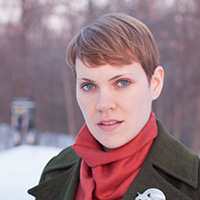 Josephine Rowe (Australia) was named the winner of the 2016 ABR Elizabeth Jolley Short Story Prize for her story ‘Glisk’ at a ceremony during the Melbourne Writers Festival. She received $7,000 for her story which was chosen from a field of nearly 1400 entries from thirty-eight countries. Anthony Lawrence (Australia) placed second for his story ‘Ash’ and Jonathan Tel (UK) came third for his story ‘The Water Calligrapher's Women’. The 2016 Jolley Prize was judged by ABR Deputy Editor Amy Baillieu, and authors Maxine Beneba Clarke and David Whish-Wilson. Subscribers can read all three shortlisted stories in the August 2016 Fiction issue. The judges also commended three stories – ‘Help Me Harden My Heart’ by Dom Amerena, ‘Window’ by Cate Kennedy, and ‘Slut Trouble’ by Beejay Silcox.
Josephine Rowe (Australia) was named the winner of the 2016 ABR Elizabeth Jolley Short Story Prize for her story ‘Glisk’ at a ceremony during the Melbourne Writers Festival. She received $7,000 for her story which was chosen from a field of nearly 1400 entries from thirty-eight countries. Anthony Lawrence (Australia) placed second for his story ‘Ash’ and Jonathan Tel (UK) came third for his story ‘The Water Calligrapher's Women’. The 2016 Jolley Prize was judged by ABR Deputy Editor Amy Baillieu, and authors Maxine Beneba Clarke and David Whish-Wilson. Subscribers can read all three shortlisted stories in the August 2016 Fiction issue. The judges also commended three stories – ‘Help Me Harden My Heart’ by Dom Amerena, ‘Window’ by Cate Kennedy, and ‘Slut Trouble’ by Beejay Silcox.
2015
Rob Magnuson Smith: ‘The Elector of Nossnearly’
 Rob Magnuson Smith (UK/US) was named the winner of the 2015 ABR Elizabeth Jolley Short Story Prize for his story ‘The Elector of Nossnearly’ by Steven Carroll at an event at the 2015 Brisbane Writers Festival. He received $5,000 for his story which was chosen from a field of over 1,200 entries sent in from thirty-one different countries. Michelle Cahill placed second for her story ‘Borges and I’ and Harriet McKnight (Australia) came third for her story ‘Crest’. The judges on this occasion were ABR Deputy Editor Amy Baillieu, poet and academic Sarah Holland-Batt and author Paddy O'Reilly. Subscribers can read all three shortlisted stories in the September 2015 Fiction issue.
Rob Magnuson Smith (UK/US) was named the winner of the 2015 ABR Elizabeth Jolley Short Story Prize for his story ‘The Elector of Nossnearly’ by Steven Carroll at an event at the 2015 Brisbane Writers Festival. He received $5,000 for his story which was chosen from a field of over 1,200 entries sent in from thirty-one different countries. Michelle Cahill placed second for her story ‘Borges and I’ and Harriet McKnight (Australia) came third for her story ‘Crest’. The judges on this occasion were ABR Deputy Editor Amy Baillieu, poet and academic Sarah Holland-Batt and author Paddy O'Reilly. Subscribers can read all three shortlisted stories in the September 2015 Fiction issue.
2014
Jennifer Down: ‘Aokigahara’
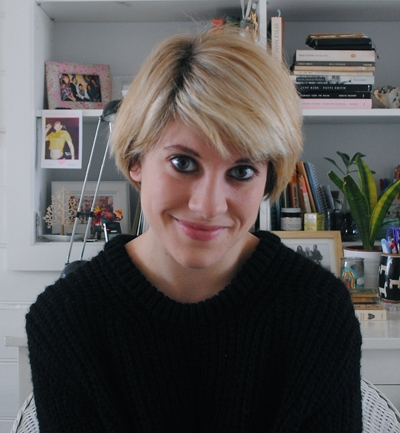 Jennifer Down was named the winner of the 2014 Jolley Prize by Ian Dickson at an event on Saturday 30 August during the Melbourne Writers Festival. She received a total of $5,000 for her winning short story, ‘Aokigahara’. Faith Oxenbridge (New Zealand) came second with her story ‘The Art of Life’, winning $2,000, and Cate Kennedy came third with ‘Doisneau's Kiss’, winning $1,000. The judges on this occasion were author–academics Patrick Allington and Cassandra Atherton and ABR Deputy Editor Amy Baillieu. This was the first year that the Jolley Prize was open to international entrants.
Jennifer Down was named the winner of the 2014 Jolley Prize by Ian Dickson at an event on Saturday 30 August during the Melbourne Writers Festival. She received a total of $5,000 for her winning short story, ‘Aokigahara’. Faith Oxenbridge (New Zealand) came second with her story ‘The Art of Life’, winning $2,000, and Cate Kennedy came third with ‘Doisneau's Kiss’, winning $1,000. The judges on this occasion were author–academics Patrick Allington and Cassandra Atherton and ABR Deputy Editor Amy Baillieu. This was the first year that the Jolley Prize was open to international entrants.
2013
Michelle Michau-Crawford: ‘Leaving Elvis’
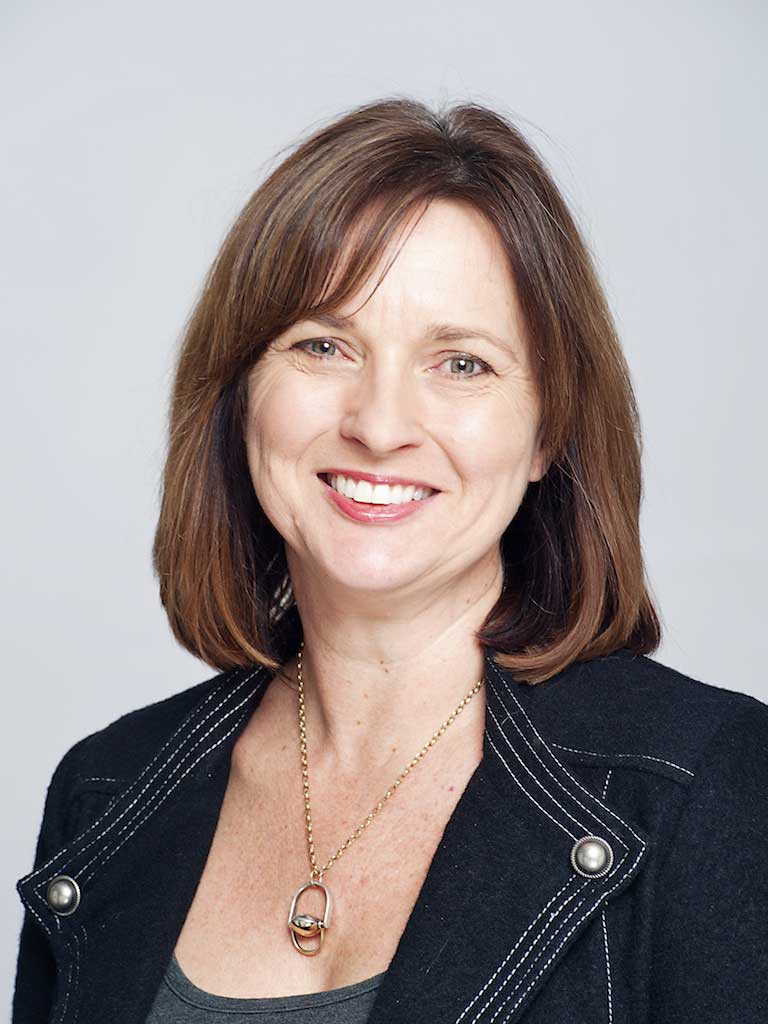 In October 2013 at a lively ceremony held at Gleebooks, David Malouf named Michelle Michau-Crawford’s ‘Leaving Elvis’ as the overall winner of the 2013 ABR Elizabeth Jolley Short Story Prize. The first prize is worth $5000. The judges – Tony Birch, Maria Takolander, and Terri-ann White – could not split the other two shortlisted stories, Rebekah Clarkson’s ‘The Five Truths of Manhood’ and Kim Mahood’s ‘The Accident’; each author receives $1500.
In October 2013 at a lively ceremony held at Gleebooks, David Malouf named Michelle Michau-Crawford’s ‘Leaving Elvis’ as the overall winner of the 2013 ABR Elizabeth Jolley Short Story Prize. The first prize is worth $5000. The judges – Tony Birch, Maria Takolander, and Terri-ann White – could not split the other two shortlisted stories, Rebekah Clarkson’s ‘The Five Truths of Manhood’ and Kim Mahood’s ‘The Accident’; each author receives $1500.
In 2013, ABR also held a Readers’ Choice Award. Readers were invited to choose their favourite out of the three shortlisted stories. They voted Rebekah Clarkson’s ‘The Five Truths of Manhood’ as their favourite.
2012
Sue Hurley: ‘Patterns in Nature’
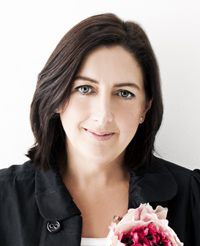 Sue Hurley won the 2012 ABR Elizabeth Jolley Short Story Prize for her story ‘Patterns in Nature’. Hurley received $5000 for her winning story, which was drawn from a large field of more than 1300 entries. Jack Cox was placed second with ‘Gorgeous Perambulator’, and Ngiare Elliot third with ‘Tended by Foxes’. They received $2000 and $1000, respectively. ABR and the judges congratulate all three authors for their outstanding contributions. The judges on this occasion were Peter Rose, Gregory Day (a winner of the 2011 Jolley Prize), and Maria Takolander (winner in 2010).
Sue Hurley won the 2012 ABR Elizabeth Jolley Short Story Prize for her story ‘Patterns in Nature’. Hurley received $5000 for her winning story, which was drawn from a large field of more than 1300 entries. Jack Cox was placed second with ‘Gorgeous Perambulator’, and Ngiare Elliot third with ‘Tended by Foxes’. They received $2000 and $1000, respectively. ABR and the judges congratulate all three authors for their outstanding contributions. The judges on this occasion were Peter Rose, Gregory Day (a winner of the 2011 Jolley Prize), and Maria Takolander (winner in 2010).
2011
Carrie Tiffany: ‘Before He Left the Family’
Gregory Day: ‘The Neighbour’s Beans’
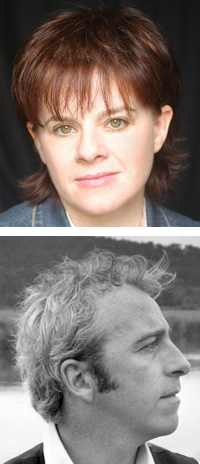 Carrie Tiffany (‘Before He Left the Family’) and Gregory Day (‘The Neighbour's Beans’) were the joint winners of the 2011 ABR Elizabeth Jolley Short Story Prize. They shared a first prize of $5000. Four stories were shortlisted, and Claire Aman (‘Milk Tray’) and Gaylene Carbis (‘What’s Richard Ford Got to Do With It?’) both received $1000. The judges on this occasion were Tony Birch (author of Blood), Mark Gomes (then-Deputy Editor of ABR), and Terri-ann White (Director of UWA Publishing). All four stories were published in the special Fiction-themed October 2011 issue of ABR.
Carrie Tiffany (‘Before He Left the Family’) and Gregory Day (‘The Neighbour's Beans’) were the joint winners of the 2011 ABR Elizabeth Jolley Short Story Prize. They shared a first prize of $5000. Four stories were shortlisted, and Claire Aman (‘Milk Tray’) and Gaylene Carbis (‘What’s Richard Ford Got to Do With It?’) both received $1000. The judges on this occasion were Tony Birch (author of Blood), Mark Gomes (then-Deputy Editor of ABR), and Terri-ann White (Director of UWA Publishing). All four stories were published in the special Fiction-themed October 2011 issue of ABR.
Four stories were commended in the 2011 Jolley Prize. They were: ‘Russell Drysdale's Trousers’ by Catherine Moffat, ‘Nitrogen’ by Meg Mundell, ‘Bad Luck’ by Rose Lane, and ‘A Body of Water’ by Else Fitzgerald.
2010
Maria Takolander: ‘A Roānkin Philosophy of Poetry’
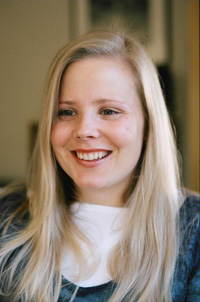 Maria Takolander won the inaugural Australian Book Review Short Story Competition. She received $2000. The judges – Chris Flynn and Peter Rose (Editor of ABR) – were impressed, and amused, by ‘A Roānkin Philosophy of Poetry’, an artful take on academic intrigue and absurdism. Maria Takolander’s story appeared in the December 2010–January 2011 issue of ABR. Placed second was Cate Kennedy for ‘Sleepers’ ($500 prize).
Maria Takolander won the inaugural Australian Book Review Short Story Competition. She received $2000. The judges – Chris Flynn and Peter Rose (Editor of ABR) – were impressed, and amused, by ‘A Roānkin Philosophy of Poetry’, an artful take on academic intrigue and absurdism. Maria Takolander’s story appeared in the December 2010–January 2011 issue of ABR. Placed second was Cate Kennedy for ‘Sleepers’ ($500 prize).
In 2010, ABR also held a Readers’ Choice Award. Readers were invited to choose their favourite out of the seven stories shortlisted. They voted Josephine Rowe's ‘Suitable for a Lampshade’ as their favourite, which was published in the February 2011 issue. The other shortlisted stories were: ‘The Virus - Travel Notes’ by David Cohen, ‘Angus's Playground’ by S.J. Finn, ‘Honey’ by Erin Gough, and ‘The Body’ by Joan Phillip.
Past winners of the Calibre Essay Prize
ABR subscribers can read all previous prize-winning and shortlisted essays to the Calibre Essay Prize. If you aren't a subscriber, digital subscriptions begin at only $10 per month. Click here to become an ABR subscriber.
2024
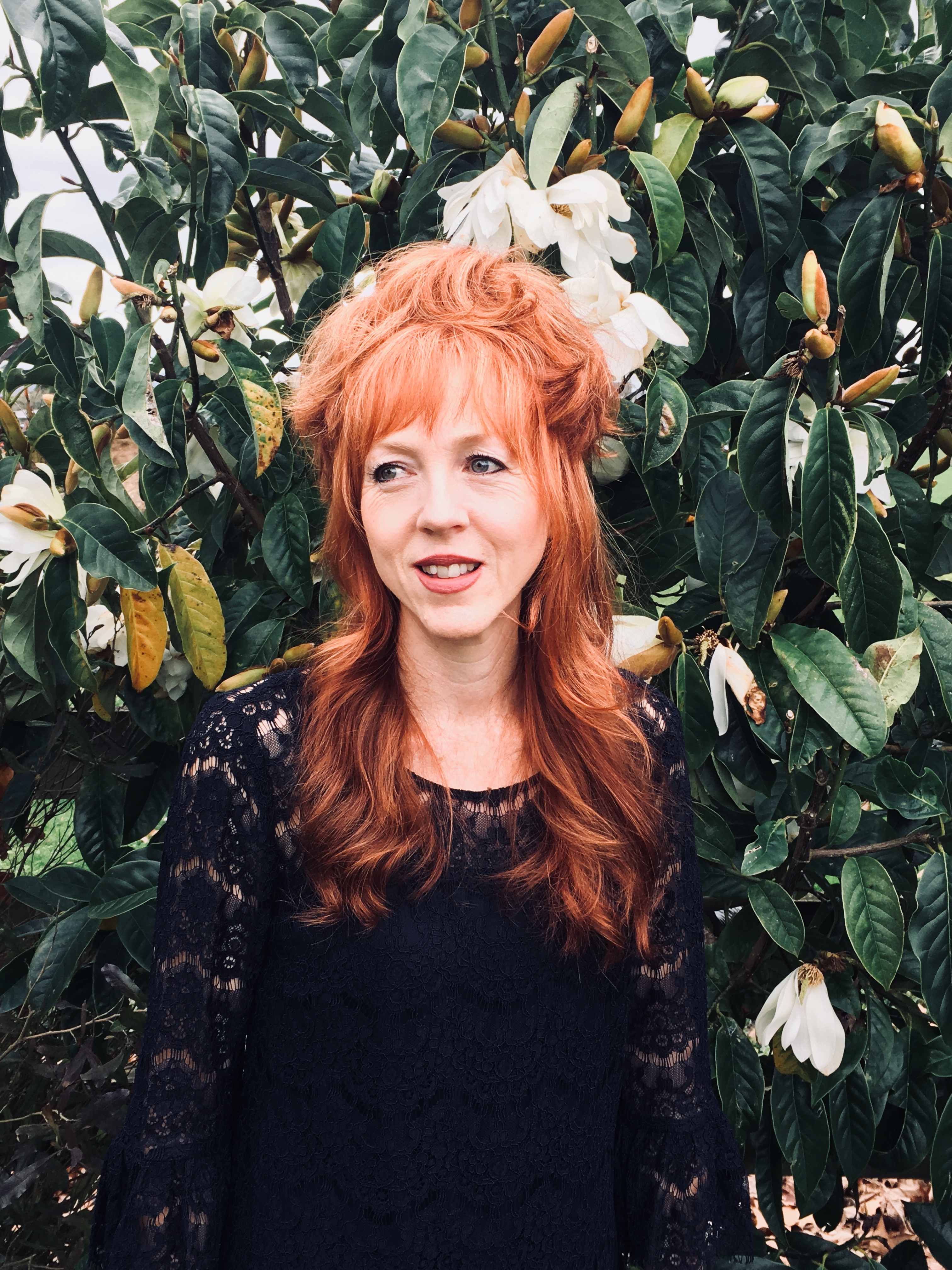 Tracey Slaughter ‘why your hair is long & your stories short’
Tracey Slaughter ‘why your hair is long & your stories short’
Tracey Slaughter won the eighteenth Calibre Essay Prize, worth a total of $10,000. Slaughter received $5,000 for her essay ‘why your hair is long & your stories short’, while the runner-up, Natasha Sholl received $3,000 for her essay, ‘Hold Your Nerve’, and Nicole Hasham received $2,000 for her essay ‘Bloodstone’.
The judges – Amy Baillieu, Shannon Burns, and Beejay Silcox – chose ‘why your hair is long & your stories short’ from a field of 567 entries from twenty-eight countries.
2023
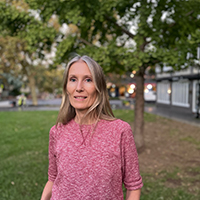 Tracy Ellis ‘Flow States’
Tracy Ellis ‘Flow States’
Writer and editor Tracy Ellis has won the seventeenth Calibre Essay Prize, worth a total of $7,500. Ellis receives $5,000 for her essay ‘Flow States’, while the runner-up, Bridget Vincent receives $2,500 for her essay, ‘Child Adjacent’.
The judges – Yves Rees (past winner of the Calibre Prize), Peter Rose (Editor of ABR), and Beejay Silcox (critic and artistic director of the Canberra Writers Festival) – chose ‘Flow States’ from a field of 397 entries. They came from twenty-four different countries – a bustling, global field.
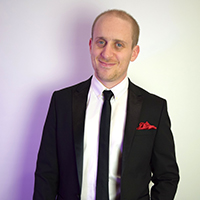 2022
2022
Simon Tedeschi: ‘This Woman My Grandmother’
Distinguished classical musician Simon Tedeschi has won the sixteenth Calibre Essay Prize, worth a total of $7,500. Tedeschi receives $5,000 for his essay ‘This Woman My Grandmother’, while the runner-up, Sarah Gory receives $2,500 for her essay, ‘Ghosts, Ghosts Everywhere’.
The judges – Declan Fry, Beejay Silcox and Peter Rose, Editor of ABR – selected a shortlist of twelve essays from a field of 569 entries from seventeen different countries.
2021
Theodore Ell: 'Façades of Lebanon'
 Theodore Ell is the winner of the 2021 Calibre Essay Prize, worth a total of $7,500, for his essay ‘Façades of Lebanon’. The judges wrote that the essay is ‘a gripping piece of reportage and a powerful meditation on the bonds of community in a time of turmoil and upheaval. It builds slowly, ominously, from the eerie quiet of Beirut during lockdown towards the catastrophic port explosion on 4 August 2020’. Ell receives $5,000.
Theodore Ell is the winner of the 2021 Calibre Essay Prize, worth a total of $7,500, for his essay ‘Façades of Lebanon’. The judges wrote that the essay is ‘a gripping piece of reportage and a powerful meditation on the bonds of community in a time of turmoil and upheaval. It builds slowly, ominously, from the eerie quiet of Beirut during lockdown towards the catastrophic port explosion on 4 August 2020’. Ell receives $5,000.
Anita Punton was named runner-up for ‘May Day’, a poignant memoir about piecing together her Olympic gymnast father’s life after his death. Anita receives $2,500.
ABR Editor Peter Rose judged the prize with Sheila Fitzpatrick and Billy Griffiths. They chose Theodore Ell's winning essay from 638 entries from twenty-eight different countries.
2020
Yves Rees: 'Reading the Mess Backwards'
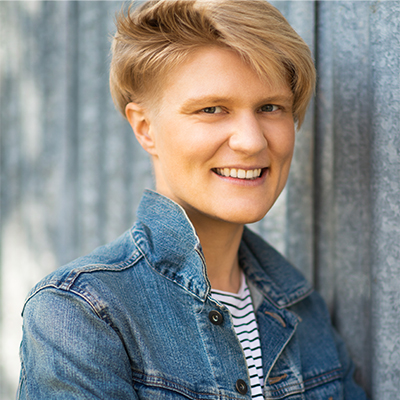 Yves Rees is the winner of the 2020 Calibre Essay Prize, worth a total of $7,500, for their essay ‘Reading the Mess Backwards’. As Rees writes, the essay is ‘a story of trans becoming that digs into the messiness of bodies, gender and identity’. Yves Rees receives $5,000.
Yves Rees is the winner of the 2020 Calibre Essay Prize, worth a total of $7,500, for their essay ‘Reading the Mess Backwards’. As Rees writes, the essay is ‘a story of trans becoming that digs into the messiness of bodies, gender and identity’. Yves Rees receives $5,000.
Kate Middleton was named runner-up for ‘The Dolorimeter’, a highly personal account of the author’s experience with illness. She receives $2,500.
ABR Editor Peter Rose judged the Prize with J.M. Coetzee (Nobel Laureate) and Lisa Gorton, (poet, novelist, and essayist). They chose Yves Rees's winning essay from almost 600 entries from twenty-nine different countries, a record field.
‘Reading the Mess Backwards’ appears in the June-July 2020 issue.
2019
Grace Karskens: 'Nah Doongh's Song'
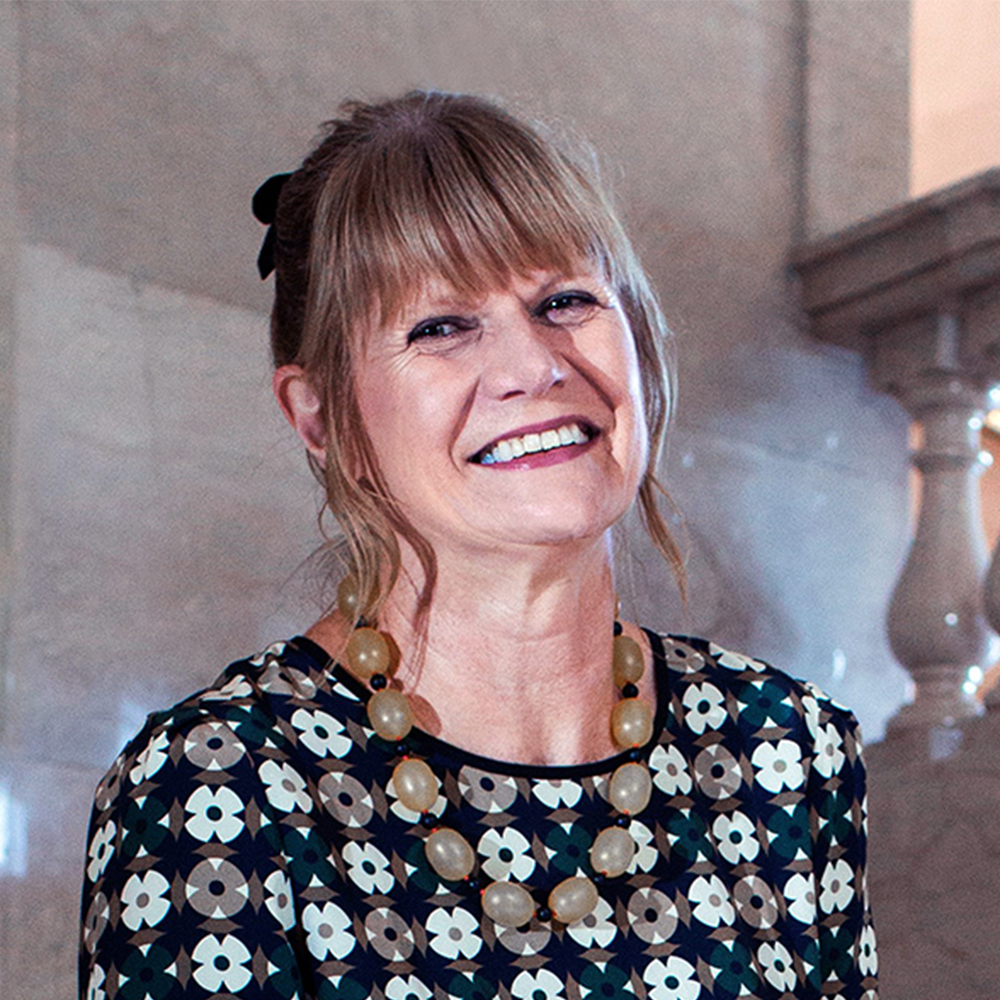 Grace Karskens is the winner of the thirteenth Calibre Essay Prize. The judges – J.M. Coetzee, author and winner of the Nobel Prize in Literature in 2003, Anna Funder, author of the international bestseller Stasiland and the Miles Franklin Award-winning novel All That I Am, and ABR Editor Peter Rose – selected Grace's essay ‘Nah Doongh's Song’ from a field of over 450 essays submitted from twenty-two countries. Grace receives $5,000, and her essay appears in the August Indigenous issue of Australian Book Review.
Grace Karskens is the winner of the thirteenth Calibre Essay Prize. The judges – J.M. Coetzee, author and winner of the Nobel Prize in Literature in 2003, Anna Funder, author of the international bestseller Stasiland and the Miles Franklin Award-winning novel All That I Am, and ABR Editor Peter Rose – selected Grace's essay ‘Nah Doongh's Song’ from a field of over 450 essays submitted from twenty-two countries. Grace receives $5,000, and her essay appears in the August Indigenous issue of Australian Book Review.
‘Nah Doongh's Song’ examines the unusually long life of one of the first Aboriginal children who grew up in conquered land. Born around 1800, Nah Doongh lived until 1898. Her losses, her peregrinations, her strong, dignified character are the subjects of this questing essay, in which the author states: ‘Biography is not a finite business; it’s a process, a journey. I have been researching, writing, and thinking about Nah Doongh … for over a decade now.’ The discoveries she makes along the way – the portrait she finally tracks down – are very stirring.
This winner of the second prize, worth $2,500, is Sarah Walker. Her essay, entitled ‘Floundering’, appears in the June–July 2019 issue.
2018
Lucas Grainger-Brown: 'We Three Hundred'
 Lucas Grainger-Brown is the winner of the twelfth Calibre Essay Prize. The judges – novelist Andrea Goldsmith, NewSouth Executive Publisher Phillipa McGuinness, and ABR Editor Peter Rose – chose Lucas’s essay ‘We Three Hundred’ from a field of over 200 essays submitted from thirteen countries. Lucas receives $5,000, and his essay appears in the April 400th issue of Australian Book Review.
Lucas Grainger-Brown is the winner of the twelfth Calibre Essay Prize. The judges – novelist Andrea Goldsmith, NewSouth Executive Publisher Phillipa McGuinness, and ABR Editor Peter Rose – chose Lucas’s essay ‘We Three Hundred’ from a field of over 200 essays submitted from thirteen countries. Lucas receives $5,000, and his essay appears in the April 400th issue of Australian Book Review.
‘We Three Hundred’ is a candid and unsentimental account of life as a cadet at the Australian Defence Force Academy in Canberra for a bookish, idealistic adolescent straight out of high school.
This winner of the second prize, worth $2,500, is Kirsten Tranter. Her essay, entitled ‘Once Again’, appears in the May 2018 issue.
2017
Michael Adams: 'Salt Blood'
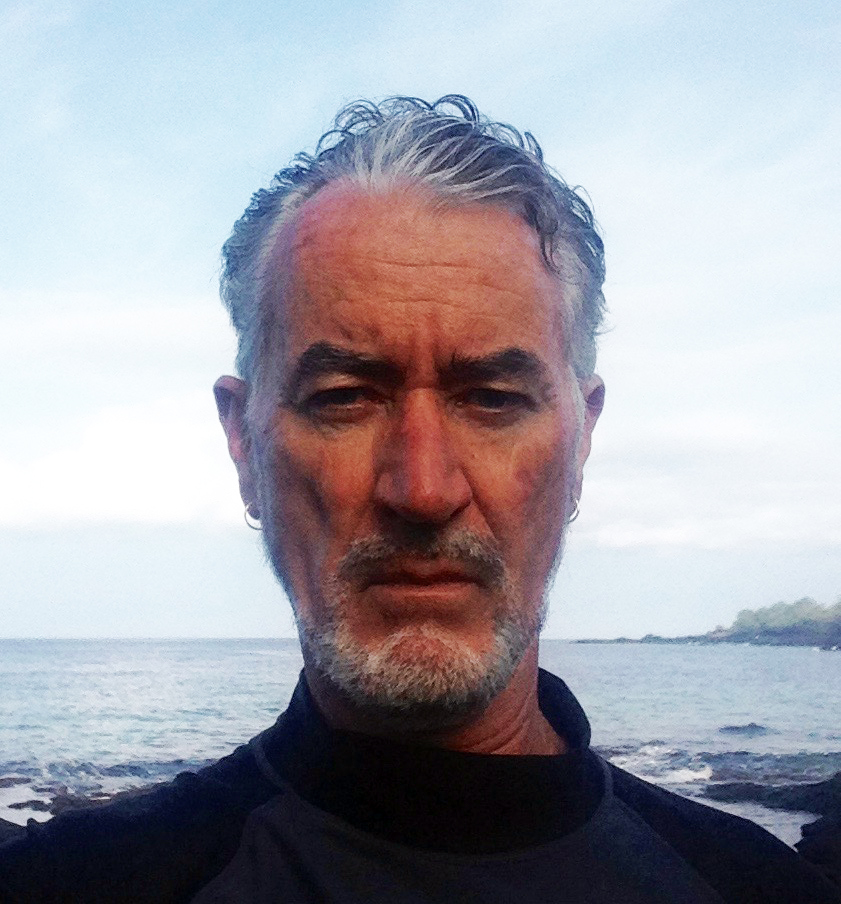 Michael Adams is the winner of the eleventh Calibre Essay Prize, worth $5,000. The judges – award-winning author and historian Sheila Fitzpatrick, ABR Editor Peter Rose, and Picador Publisher Geordie Williamson – chose Michael Adams’s essay ‘Salt Blood’ from a field of almost 200 essays submitted from fourteen countries.
Michael Adams is the winner of the eleventh Calibre Essay Prize, worth $5,000. The judges – award-winning author and historian Sheila Fitzpatrick, ABR Editor Peter Rose, and Picador Publisher Geordie Williamson – chose Michael Adams’s essay ‘Salt Blood’ from a field of almost 200 essays submitted from fourteen countries.
‘Salt Blood’ is a remarkable and highly original meditation on freediving and mortality.
This year ABR has added a second prize, worth $2,500. The winner is Darius Sepehri, a researcher and PhD student at the University of Sydney. His essay – entitled ‘To Speak of Sorrow’ (published in the August issue) – is about the many kinds of grief and their different expressions in writing and culture, as lament, testimony, or ritual.
Michael Adams's winning essay was published in the June-July 2017 issue of ABR.
2016
Michael Winkler: 'The Great Red Whale'
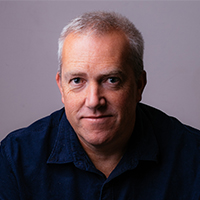 Michael Winkler was the winner of the tenth Calibre Prize, worth $5,000. The judges – Sophie Cunningham and ABR Editor and CEO Peter Rose – chose Winkler’s essay from a large field.
Michael Winkler was the winner of the tenth Calibre Prize, worth $5,000. The judges – Sophie Cunningham and ABR Editor and CEO Peter Rose – chose Winkler’s essay from a large field.
‘The Great Red Whale’ is an essay about fractures, overlaying the ruptures within the author's psyche with the fissure between Indigenous and non-Indigenous Australians, something he believes keeps us 'heartsore as a nation'. This excoriating yet remarkably subtle meditation is also a tribute to consolations: landscape, specifically the desert of Central Australia, and literature, notably Moby-Dick.
Michael Winkler’s winning essay was published in the June–July 2016 issue of ABR.
2015
Sophie Cunningham: 'Staying with the trouble'
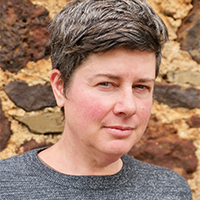 Sophie Cunningham was the winner of the ninth Calibre Prize, worth $5000. The judges – Delia Falconer and ABR Editor and CEO Peter Rose – chose Cunningham’s essay from a large field.
Sophie Cunningham was the winner of the ninth Calibre Prize, worth $5000. The judges – Delia Falconer and ABR Editor and CEO Peter Rose – chose Cunningham’s essay from a large field.
‘Staying with the trouble’ describes an epic walk up Broadway in New York, and others like it. The tone is self-deprecating, conversational, and ‘gloriously social’, but all sorts of themes arise along the way: Alzheimer’s, Horseshoe Crabs, history, writers, violence against women, racism, Selma, and climate change. It is a celebration of ‘randomness’, but also testifies to Sophie Cunningham’s belief in the importance of ‘staying with the trouble’.
Sophie Cunningham’s winning essay is published in the May 2015 issue of ABR
2014
Christine Piper: 'Unearthing the Past'
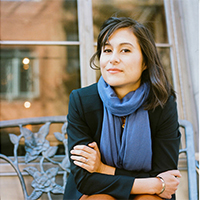 Christine Piper was the winner of the eighth Calibre Prize, worth $5,000. The judges – Morag Fraser and ABR Editor and CEO Peter Rose – chose Piper’s essay from a large field.
Christine Piper was the winner of the eighth Calibre Prize, worth $5,000. The judges – Morag Fraser and ABR Editor and CEO Peter Rose – chose Piper’s essay from a large field.
In her essay, ‘Unearthing the Past’, Christine Piper writes about biological weapons and experiments on living human beings in pre-war and wartime Japan. The remains of just some of the victims (the overall death toll is estimated at 250,000 to 300,000) were discovered in Tokyo twenty-five years ago. They have never been identified. The story takes Dr Piper to Japan, where she interviews key lawyers and activists who are seeking answers. We also meet the unspeakable Shiro Ishii, dubbed the Josef Mengele of Japan. Ishii, who masterminded Japan’s biological warfare program, escaped prosecution through an immunity deal with the United States. He died at home in 1959.
Christine Piper's winning essay is published in the April 2014 issue of ABR. The eighth Calibre Prize was supported by ABR Patron Mr Colin Golvan QC.
2013
Martin Thomas: '"Because it's your country": Bringing Back the Bones to West Arnhem Land'
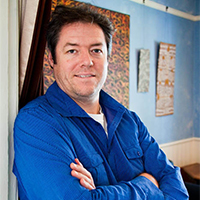 Martin Thomas was the winner of the seventh Calibre Prize, worth $5,000. The judges – Morag Fraser and Editor and CEO Peter Rose – chose his essay from a field of about 150 entries.
Martin Thomas was the winner of the seventh Calibre Prize, worth $5,000. The judges – Morag Fraser and Editor and CEO Peter Rose – chose his essay from a field of about 150 entries.
Dr Thomas’s essay, ‘“Because it’s your country”: Bringing Back the Bones to West Arnhem Land’ stood out in a strong field. The topic – the violation and restitution of Aboriginal remains – is a pressing one, and the author examines it with empathy and considerable knowledge of the personalities and sensitivities involved.
The essay was published in our April 2013 issue. The seventh Calibre Prize was supported by ABR Patron Mr Colin Golvan QC.
2012
Matt Rubinstein: 'Body and Soul: Copyright and Law Enforcement in the Age of the Electronic Book'
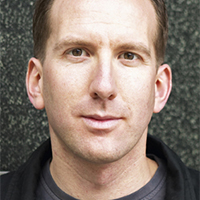 Australian Book Review and Copyright Agency awarded the sixth Calibre Prize for an Outstanding Essay to Matt Rubinstein who receives $7,000. The judges – Professor Ian Donaldson and ABR Editor Peter Rose – chose Rubinstein’s essay from a large field of entries. The second prize of $2,000 was awarded to Colin Nettelbeck, for his essay ‘Now They’ve Gone’.
Australian Book Review and Copyright Agency awarded the sixth Calibre Prize for an Outstanding Essay to Matt Rubinstein who receives $7,000. The judges – Professor Ian Donaldson and ABR Editor Peter Rose – chose Rubinstein’s essay from a large field of entries. The second prize of $2,000 was awarded to Colin Nettelbeck, for his essay ‘Now They’ve Gone’.
Matt Rubinstein's essay appeared in the September 2012 issue of ABR. The essay, entitled ‘Body and Soul: Copyright Law and Enforcement in the Age of the Electronic Book’, could not be more timely – a probing, meticulously researched survey of inherited notions of intellectual copyright and of new, accelerating challenges to such in the face of electronic publishing, the rapid swing to e-books, and ever more laissez-faire attitudes towards authorial rights.
2011
Dean Biron: 'The Death of the Writer' and Moira McKinnon: 'Who Killed Matilda?'
 Australian Book Review awarded the fifth Calibre Prize for an Outstanding Essay to Dean Biron and Moira McKinnon. Each essayist received $5,000. The judges were Jane Goodall (a winner of the Calibre Prize in 2009) and Peter Rose (Editor of ABR). Biron’s essay appeared in the May 2011 issue of ABR, and McKinnon’s in the July–August 2011 issue. Copyright Agency Limited supported the Prize again in this year.
Australian Book Review awarded the fifth Calibre Prize for an Outstanding Essay to Dean Biron and Moira McKinnon. Each essayist received $5,000. The judges were Jane Goodall (a winner of the Calibre Prize in 2009) and Peter Rose (Editor of ABR). Biron’s essay appeared in the May 2011 issue of ABR, and McKinnon’s in the July–August 2011 issue. Copyright Agency Limited supported the Prize again in this year.
Moira McKinnon is a public health physician who has worked in northern Australia and northern Canada. Her essay, ‘Who Killed Matilda?’, is based on her years as the main adviser on communicable diseases for the Australian Department of Health and Ageing.
Dean Biron lives in Brisbane and has a PhD from the University of New England. A former police detective, Dr Biron is currently employed as a senior analyst with the Queensland Children’s Commission. In his essay, ‘The Death of the Writer’ – more polemical than most Calibre entries – Dr Biron opposes a culture that inflames literary ambition and self-identification.
2010
Lorna Hallahan: 'On being Odd' and David Hansen: 'Seeing Truganini'
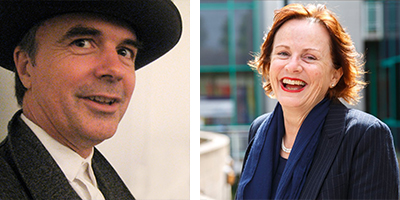 Lorna Hallahan and David Hansen were the joint winners of the 2010 Calibre Prize for an Outstanding Essay, the fourth to be presented by ABR, in association with Copyright Agency Limited’s Cultural Fund. Both authors received $5,000. The judges were critic James Ley and ABR Editor Peter Rose. Hallahan and Hansen’s essays appeared in the May 2010 issue of ABR.
Lorna Hallahan and David Hansen were the joint winners of the 2010 Calibre Prize for an Outstanding Essay, the fourth to be presented by ABR, in association with Copyright Agency Limited’s Cultural Fund. Both authors received $5,000. The judges were critic James Ley and ABR Editor Peter Rose. Hallahan and Hansen’s essays appeared in the May 2010 issue of ABR.
David Hansen’s essay ‘Death Dance’ was commended in the inaugural prize, in 2007. In ‘Seeing Truganini’, he has forthright things to say about the recent abortive sale of Benjamin Law’s busts of Truganini and Woureddy, and about the controversy surrounding the promulgation of historical artefacts. Dr Hansen deplores the stigma surrounding such works, and is critical of academic and curatorial timidity and silence.
In ‘On Being Odd’, Lorna Hallahan, who teaches at Flinders University, writes about a different form of stigmatisation: the marginalisation of the different, the disabled, the supposedly ‘odd’ or ‘grotesque’.
Click here to download the media release.
2009
Kevin Brophy: ‘“What’re yer looking at yer fuckin’ dog”: Violence and Fear in Žižek’s Post-political Neighbourhood’ and Jane Goodall: 'Footprints'
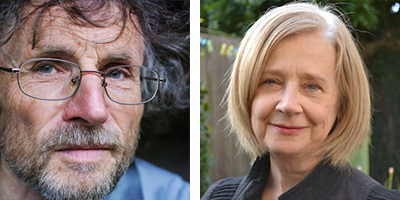 The 2009 Calibre Prize for an Outstanding Essay was shared by Kevin Brophy and Jane Goodall. The judges were Gay Bilson, Peter Rose (Editor of ABR), and Rebecca Starford (then-Deputy Editor of ABR). The Prize – a joint initiative of ABR and Copyright Agency Limited's Cultural Fund – was worth $10,000 in this year, and both authors received $5,000. Their essays were published in the April 2009 issue of ABR.
The 2009 Calibre Prize for an Outstanding Essay was shared by Kevin Brophy and Jane Goodall. The judges were Gay Bilson, Peter Rose (Editor of ABR), and Rebecca Starford (then-Deputy Editor of ABR). The Prize – a joint initiative of ABR and Copyright Agency Limited's Cultural Fund – was worth $10,000 in this year, and both authors received $5,000. Their essays were published in the April 2009 issue of ABR.
Jane Goodall’s theme, like her succinct title (‘Footprints’), has a kind of suaveness and urgency as she explores ideas about ecology and personal responsibility with reference to Kate Grenville, Mrs Aeneas Gunn, Nevil Shute, and a sublime short story by Leo Tolstoy.
Kevin Brophy’s title, ‘What’re yer lookin’ at yer fuckin’ dog?’, introduces an amazing tale of domestic mayhem and incivility in present-day inner Melbourne. Kevin Brophy’s tormentors may have been the neighbours from hell, but what a tale it is. To make sense of this five-year drama, Kevin Brophy draws on the Slovenian philosopher Slavoj Žižek and his theory that violence – ubiquitous violence, as he sees it – is the very basis of late capitalist ‘post-political’ life.
2008
Rachel Robertson: 'Reaching One Thousand' and Mark Tredinnick: 'A Storm and a Teacup'
 The 2008 Calibre Prize for an Outstanding Essay was won by Rachel Robertson and Mark Tredinnick. This was the first time that the Calibre Prize – a joint initiative of ABR and Copyright Agency Limited's Cultural Fund – was shared. The judges were Kerryn Goldsworthy (a former Editor of ABR), Paul Hetherington (Associate Professor of Writing at the University of Canberra), and Peter Rose (Editor of ABR). The Prize was worth $10,000 in this year. Their essays were published in the February 2008 issue of ABR.
The 2008 Calibre Prize for an Outstanding Essay was won by Rachel Robertson and Mark Tredinnick. This was the first time that the Calibre Prize – a joint initiative of ABR and Copyright Agency Limited's Cultural Fund – was shared. The judges were Kerryn Goldsworthy (a former Editor of ABR), Paul Hetherington (Associate Professor of Writing at the University of Canberra), and Peter Rose (Editor of ABR). The Prize was worth $10,000 in this year. Their essays were published in the February 2008 issue of ABR.
The title of Rachel Robertson’s essay is ‘Reaching One Thousand’. This is an impressively subtle study of autism and of its consequences for the child and for the parents alike. With dry wit it also introduces readers to an eccentric world of professional and amateur mathematicians. Ms Robertson’s adroit depiction of a family recognising and responding to autism is as impressive as her anxious care for her son ‘Ben’ (all names in this essay have been changed).
The title of Mark Tredinnick's essay is ‘A Storm and a Teacup’. It begins in a deluge, as it were: the heavy rains that flooded parts of southeast Australia in June 2007. These falls and the general inundation fail to alleviate Dr Tredinnick’s concerns about ‘the driest continent’ and the need for a profound reassessment of how many resources we all need individually to live equably and sustainably. Tea and its harmonising ceremonies and literature provide the key in this elegant, succinct essay, which also deals with the literary life in the twenty-first century.
2007
Elisabeth Holdsworth: 'An die Nachgeborenen: For Those Who Come After'
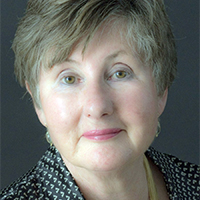 Elisabeth Holdsworth was the winner of the inaugural Calibre Prize for an Outstanding Essay, a joint initiative of Australian Book Review (ABR) and Copyright Agency Limited's Cultural Fund. She received $10,000. Her essay was published in the February 2007 issue of ABR. The judges were Peter Rose (Editor of ABR), Kerryn Goldsworthy (a former Editor of ABR), and Imre Salusinszky (Editor of The Oxford Book of Australian Essays, 1997).
Elisabeth Holdsworth was the winner of the inaugural Calibre Prize for an Outstanding Essay, a joint initiative of Australian Book Review (ABR) and Copyright Agency Limited's Cultural Fund. She received $10,000. Her essay was published in the February 2007 issue of ABR. The judges were Peter Rose (Editor of ABR), Kerryn Goldsworthy (a former Editor of ABR), and Imre Salusinszky (Editor of The Oxford Book of Australian Essays, 1997).
The title of her stirring and luminous essay is ‘An die Nachgeborenen: For Those Who Come After’, from the poem of the same name by Bertolt Brecht. Ms Holdsworth was born in the Netherlands soon after World War II. Her essay describes her recent return to the Netherlands and her family’s vicissitudes and suffering during the war.
'I would like to thank everyone involved in the Calibre Prize. I am deeply honoured to be the inaugural winner. That this essay has gained some attention in this year celebrating four hundred years of Dutch-Australian contact is fantastic.' – Elisabeth Holdsworth.
Elisabeth Holdsworth's second essay, 'Missing from my own life' was published in the October 2008 issue of ABR.
ABR Prizes
Calibre Essay Prize
Australia’s leading award for an original essay is intended to foster new insights into culture, society, and the human condition. All non-fiction subjects are eligible for submission. The prize is worth a total of $10,000, and is supported by Peter McLennan and Mary-Ruth Sindrey.
Peter Porter Poetry Prize
ABR’s prestigious international poetry prize is named in honour of the late Australian poet Peter Porter. The prize is worth a total of AU$10,000. The Peter Porter Poetry is funded by the ABR Patrons, including support in memory of Kate Boyce.
ABR Elizabeth Jolley Short Story Prize
ABR’s annual international short fiction prize is named in honour of the late author Elizabeth Jolley, and is worth a total of AU$12,500. The Prize is supported by ABR Patron Ian Dickson.
